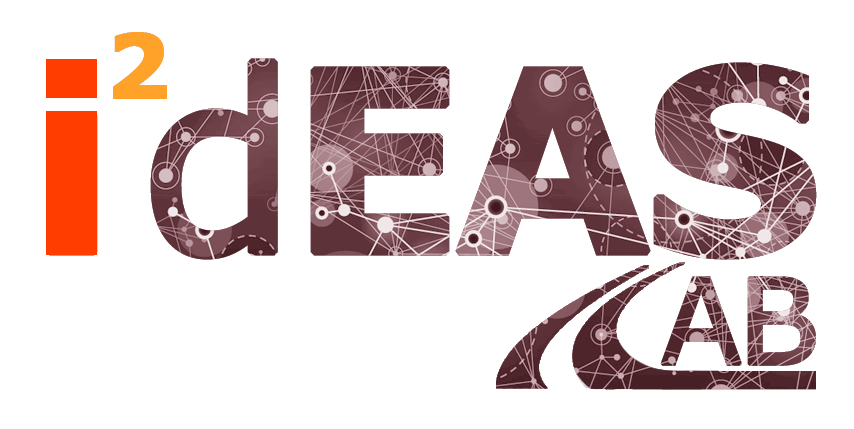
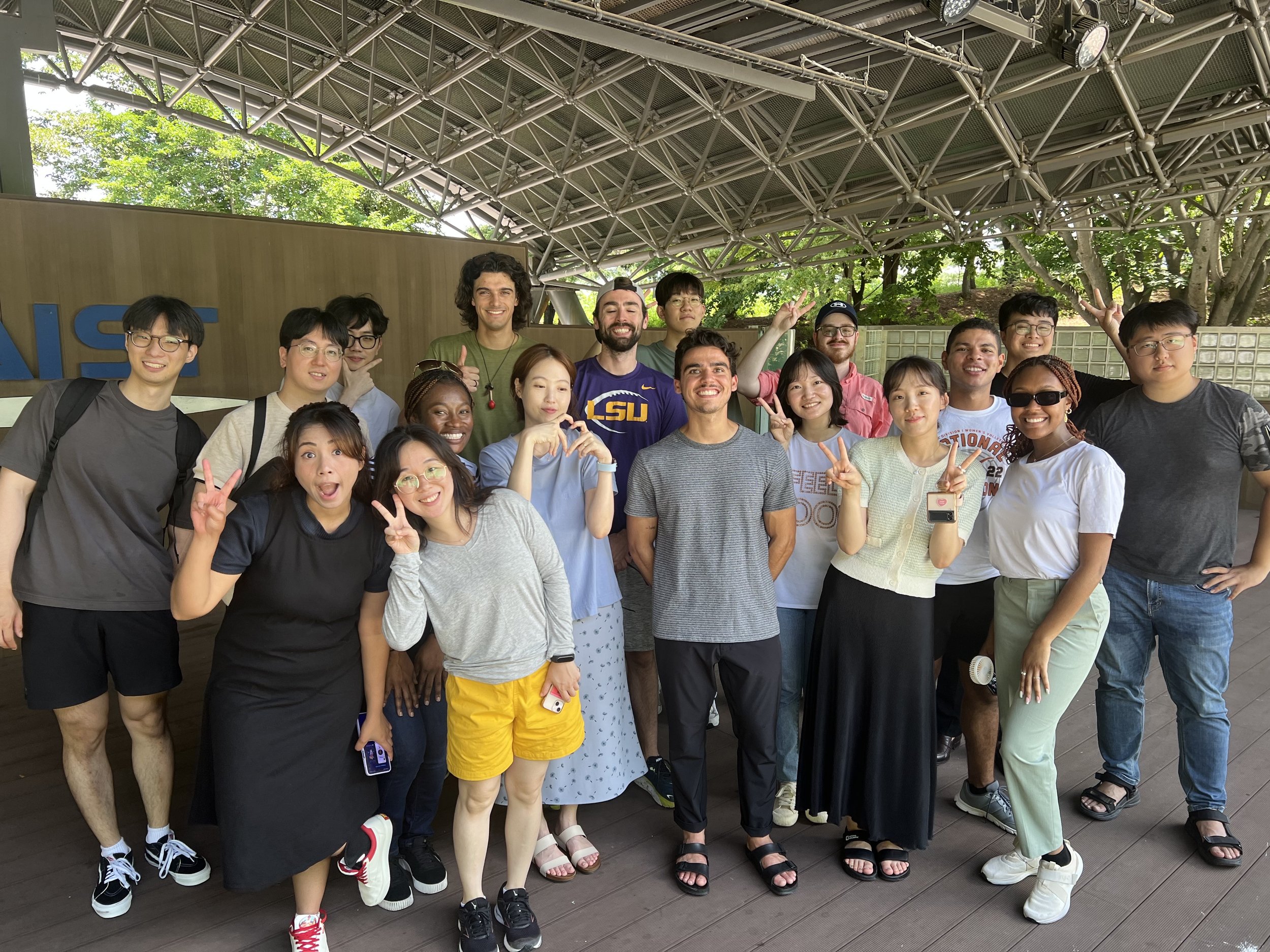

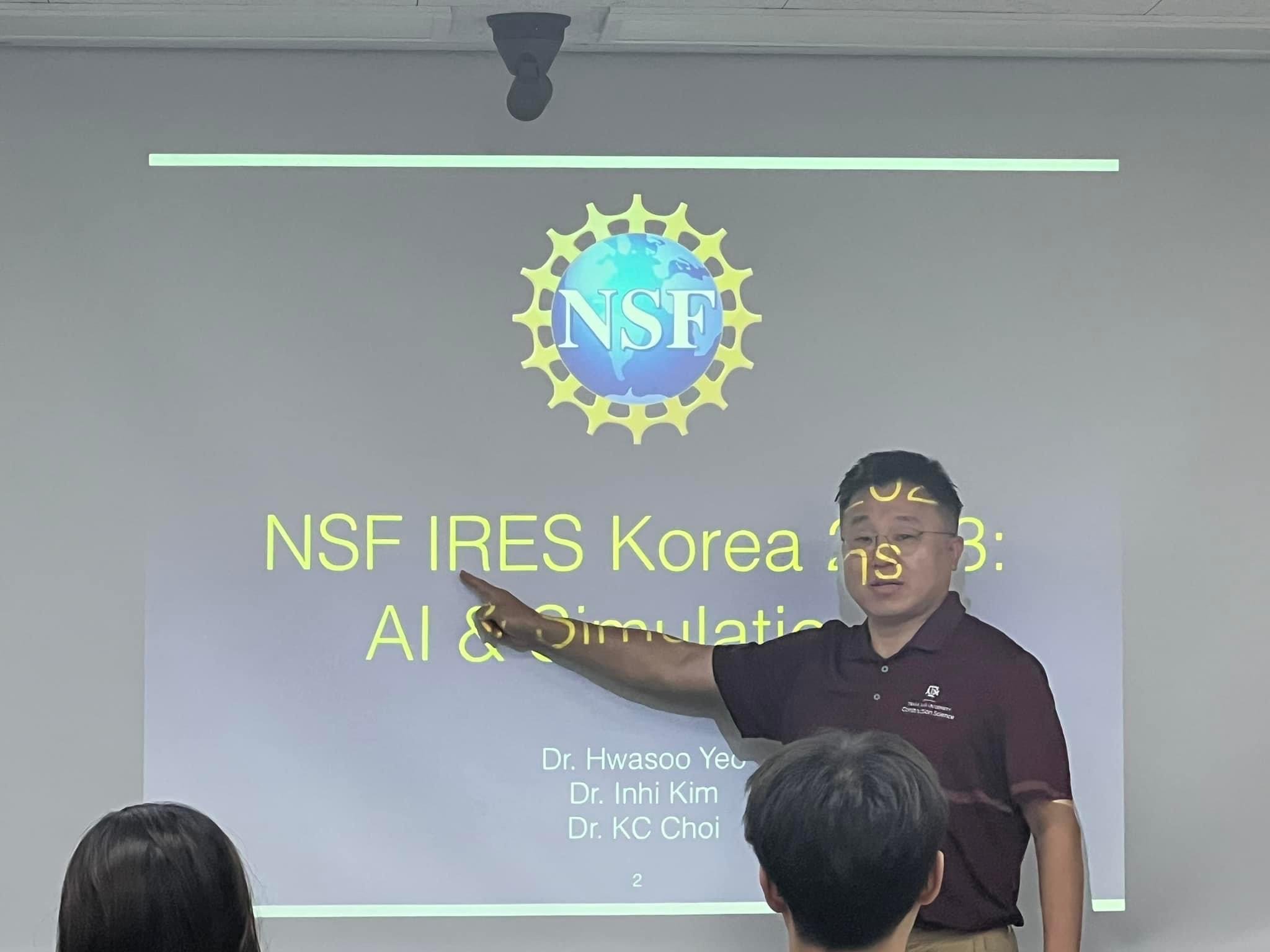
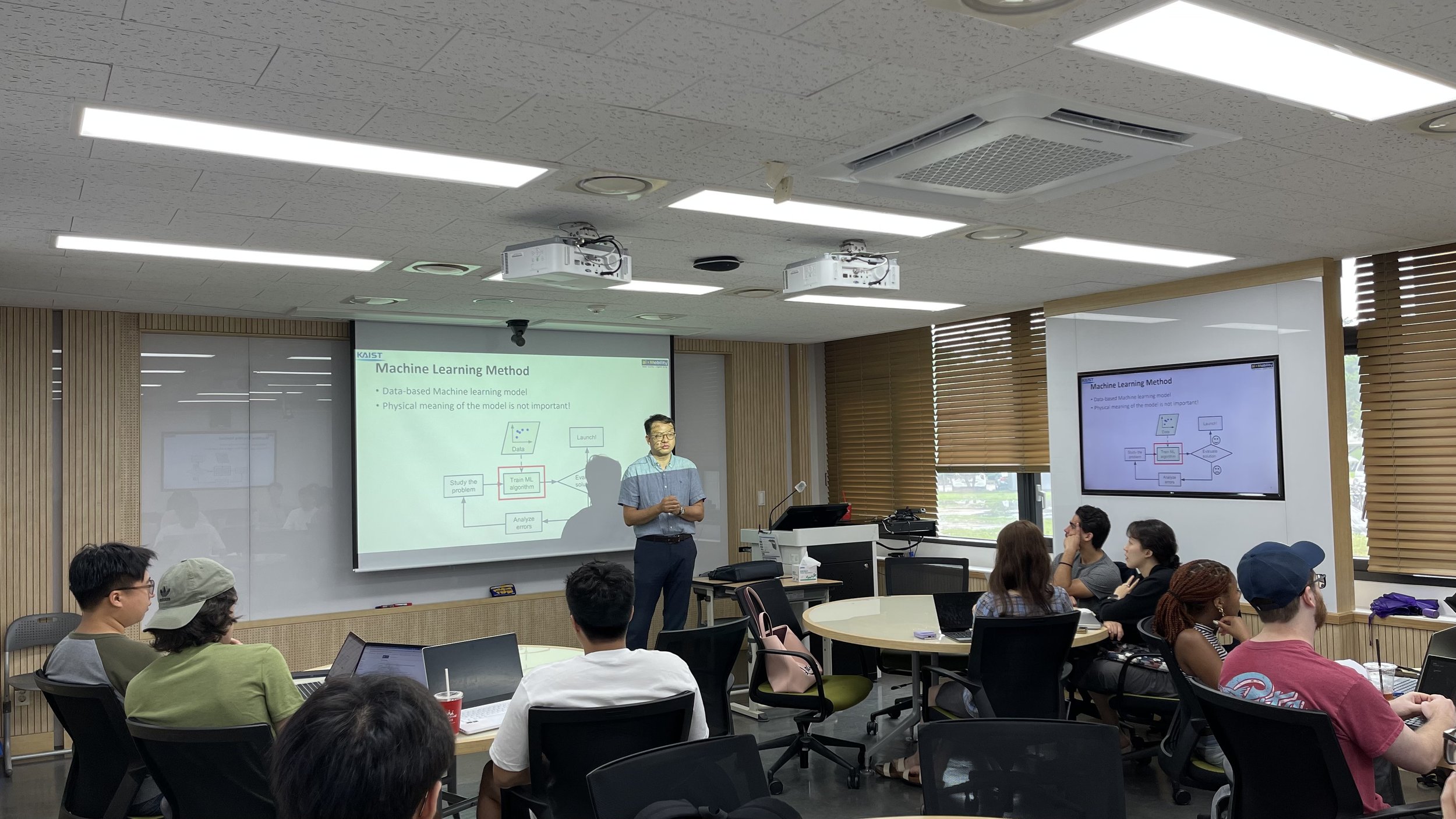

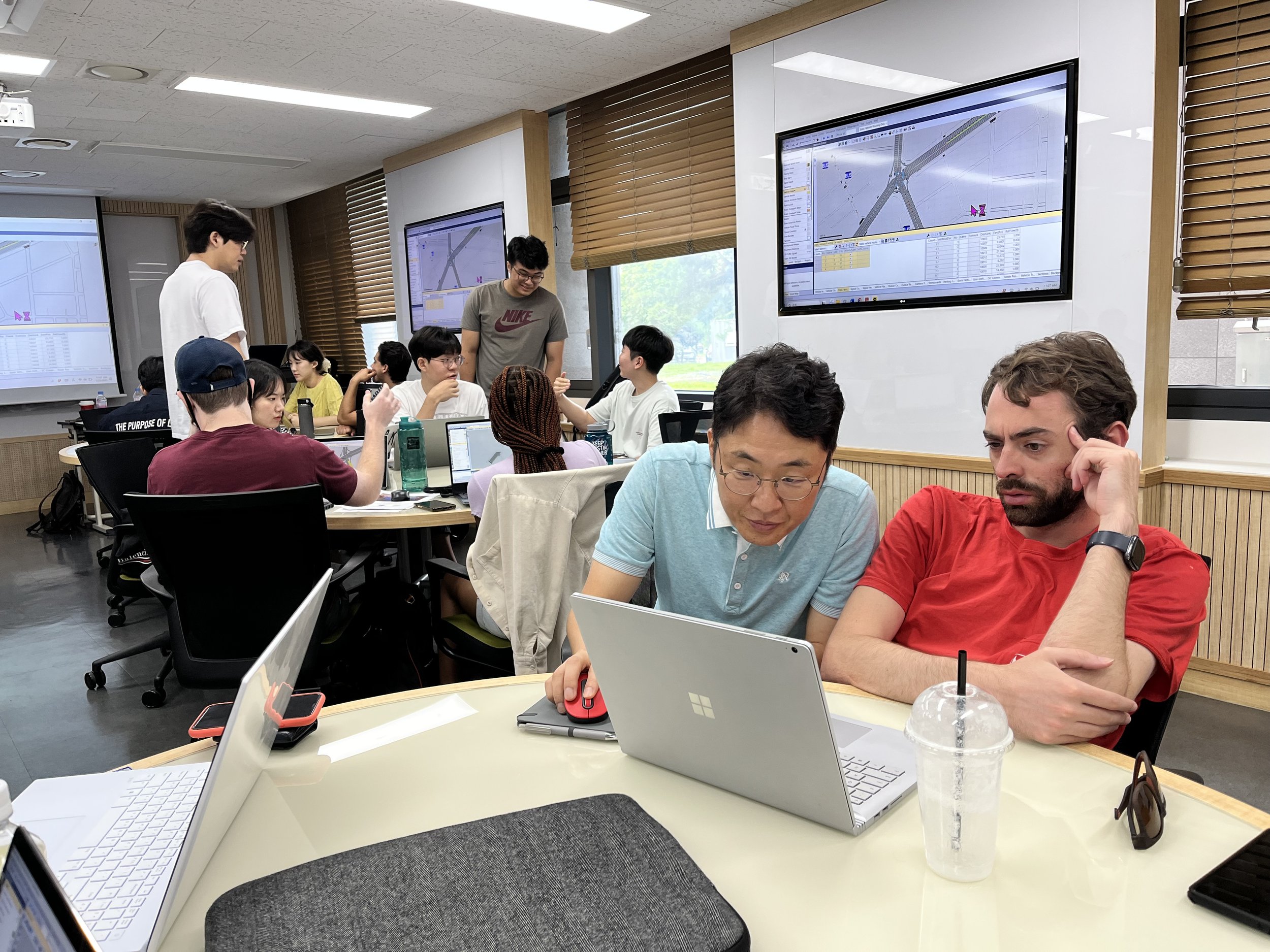
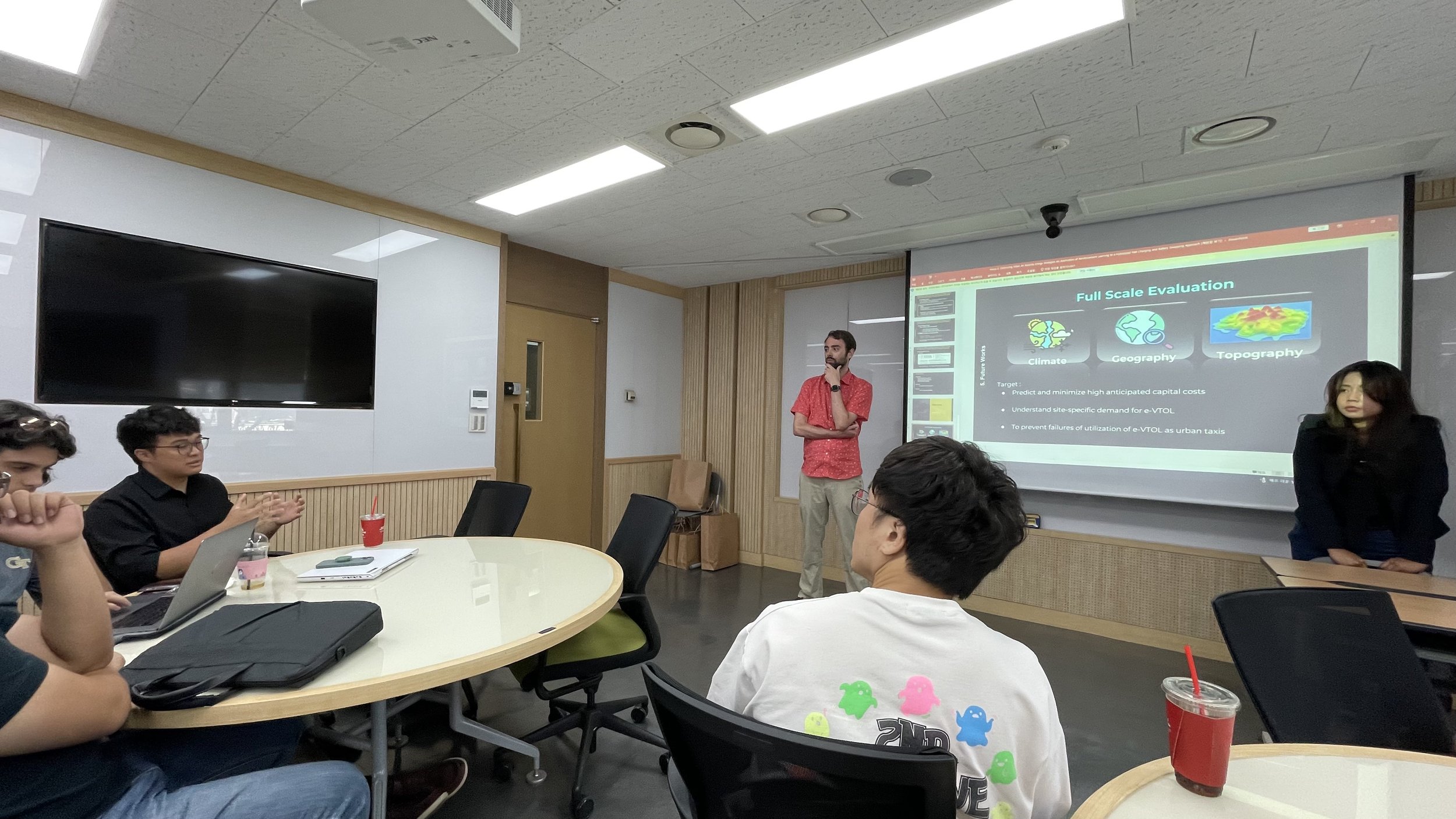
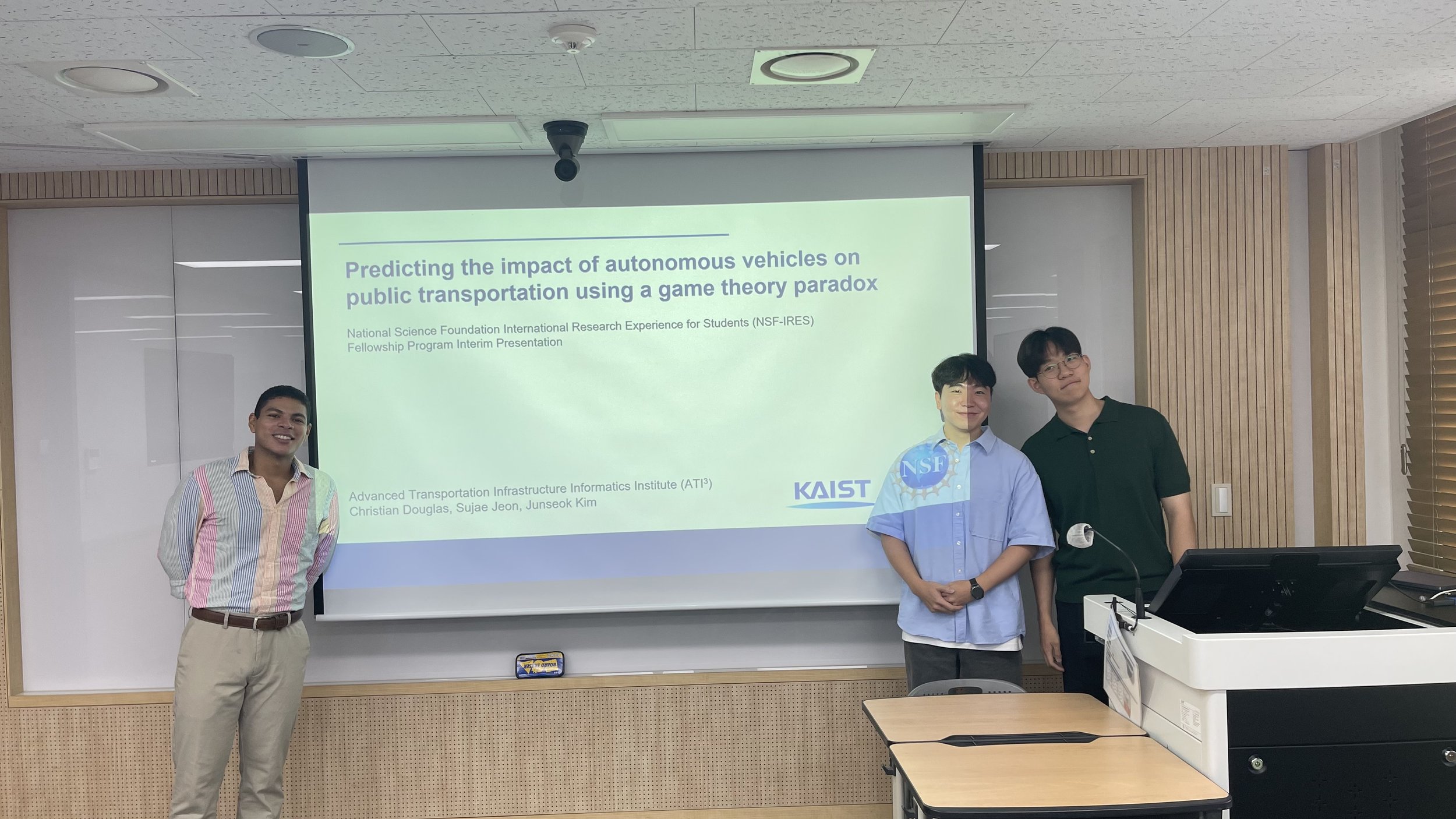
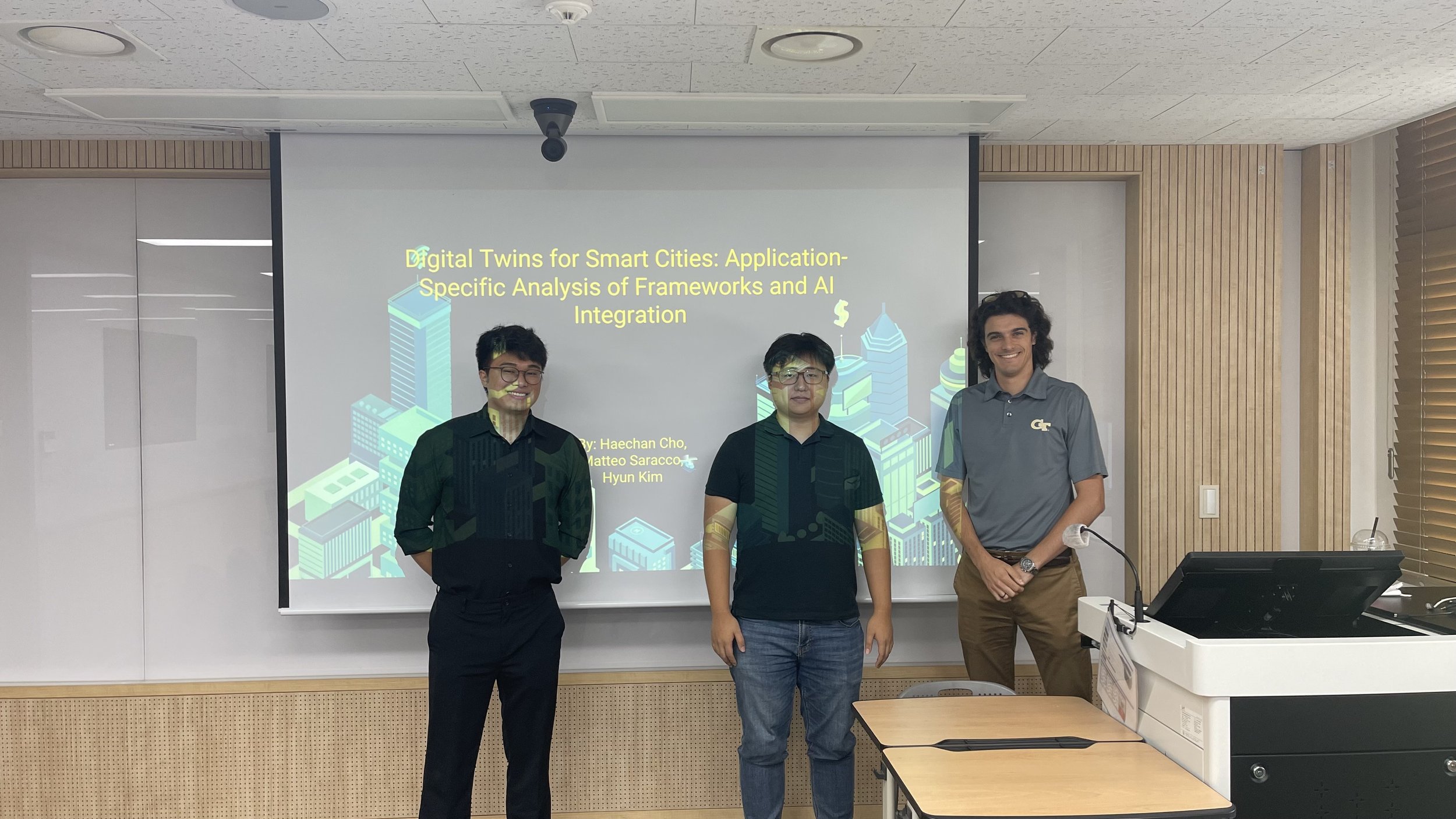
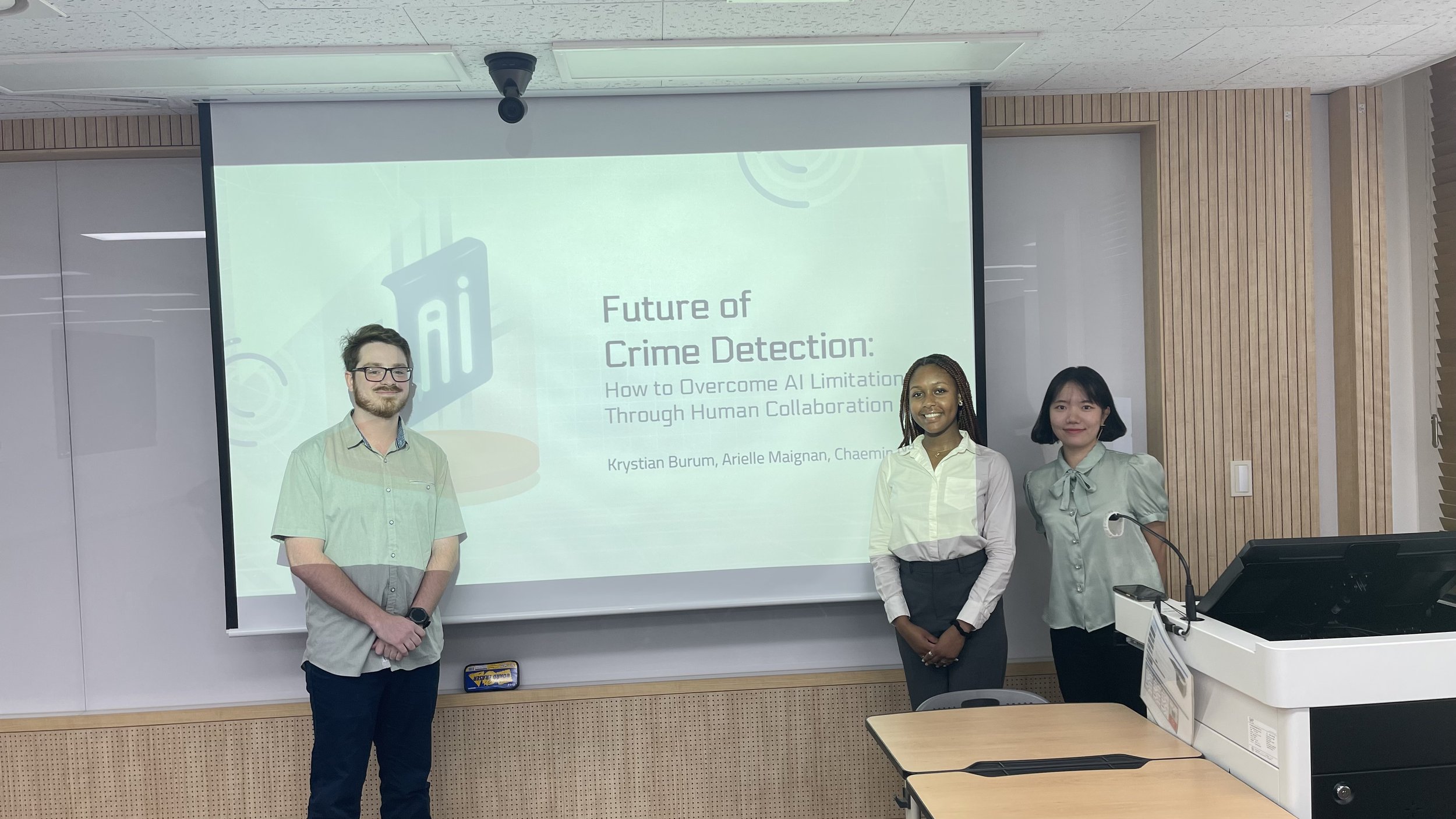
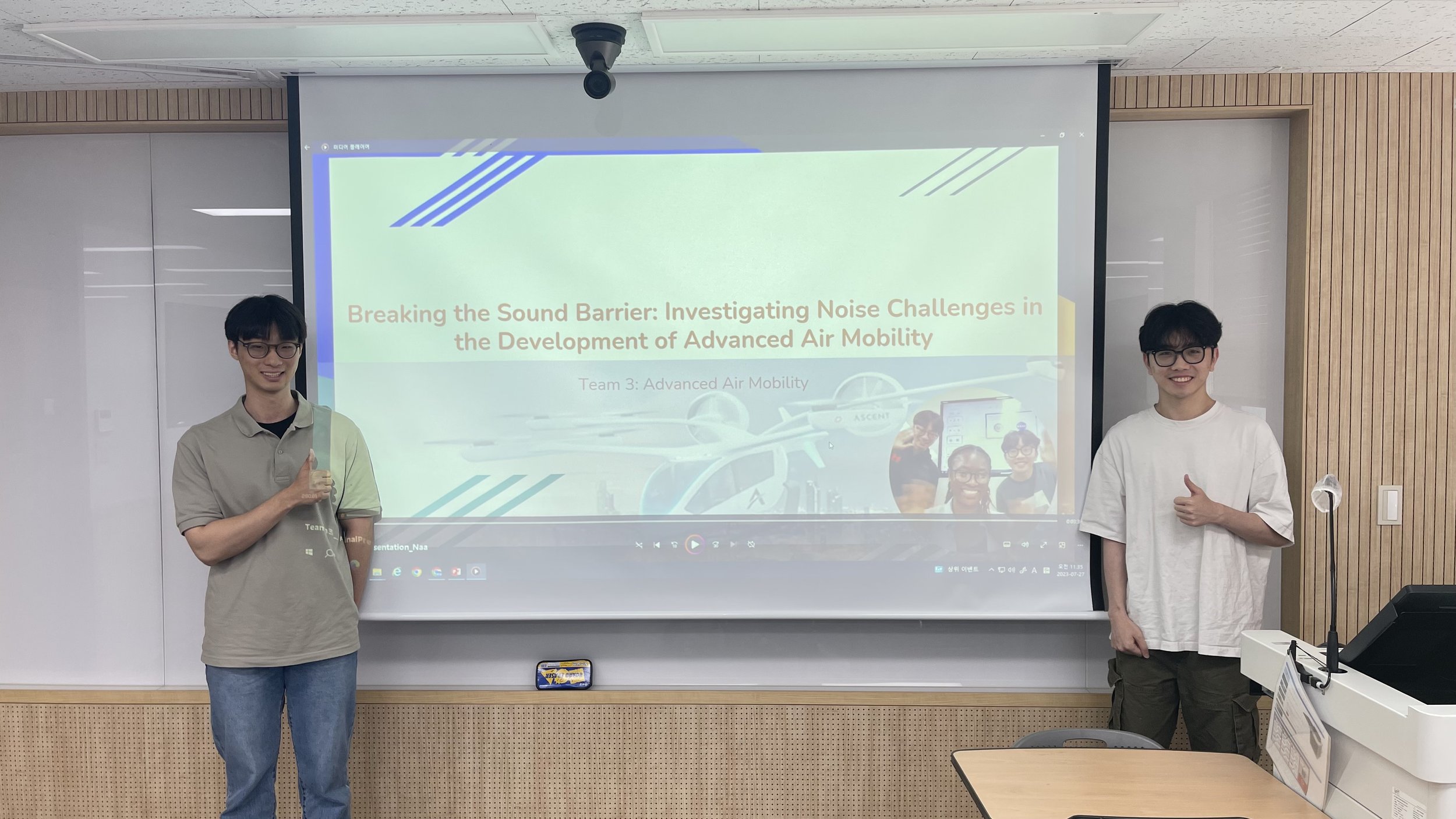
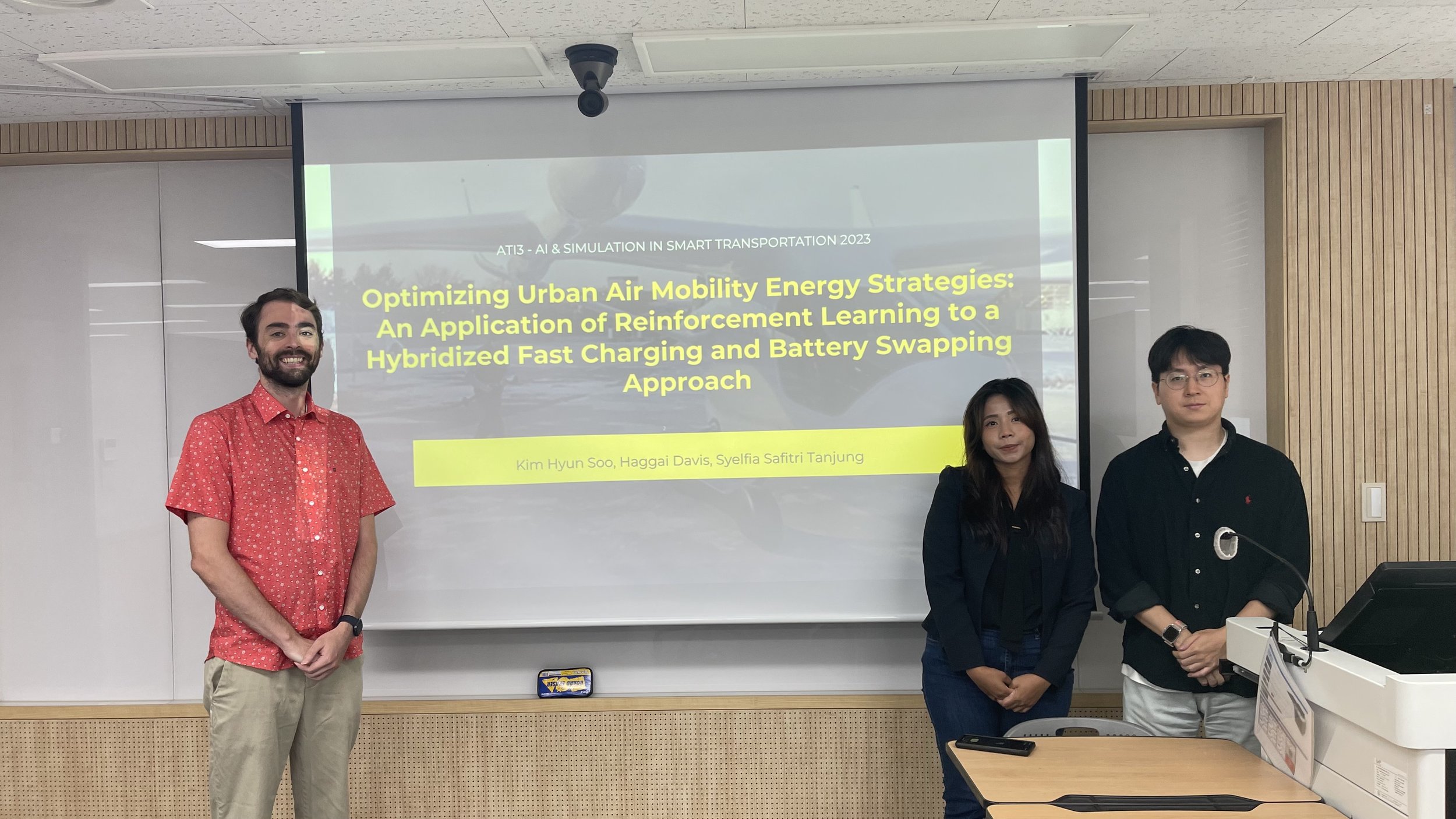
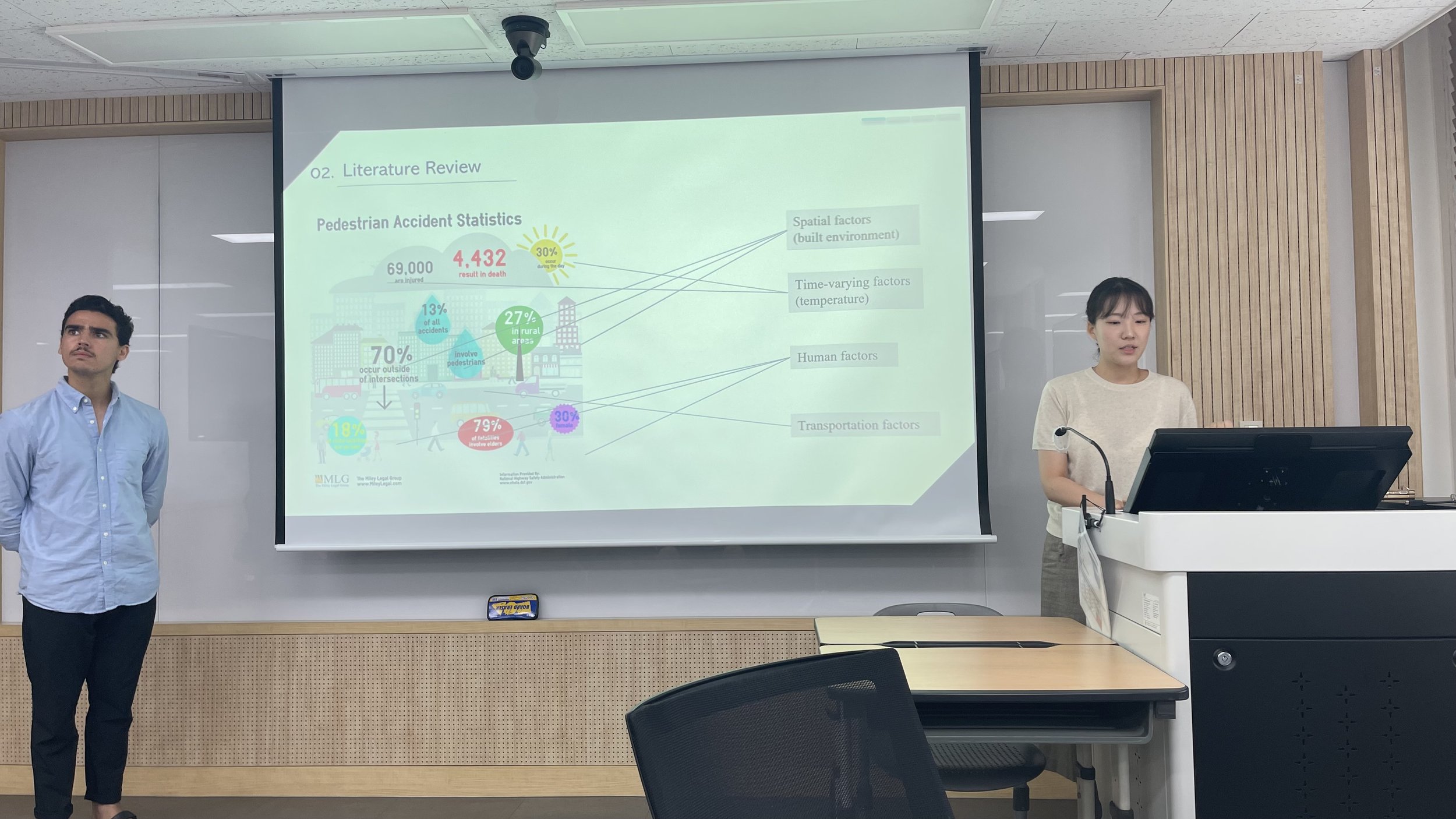
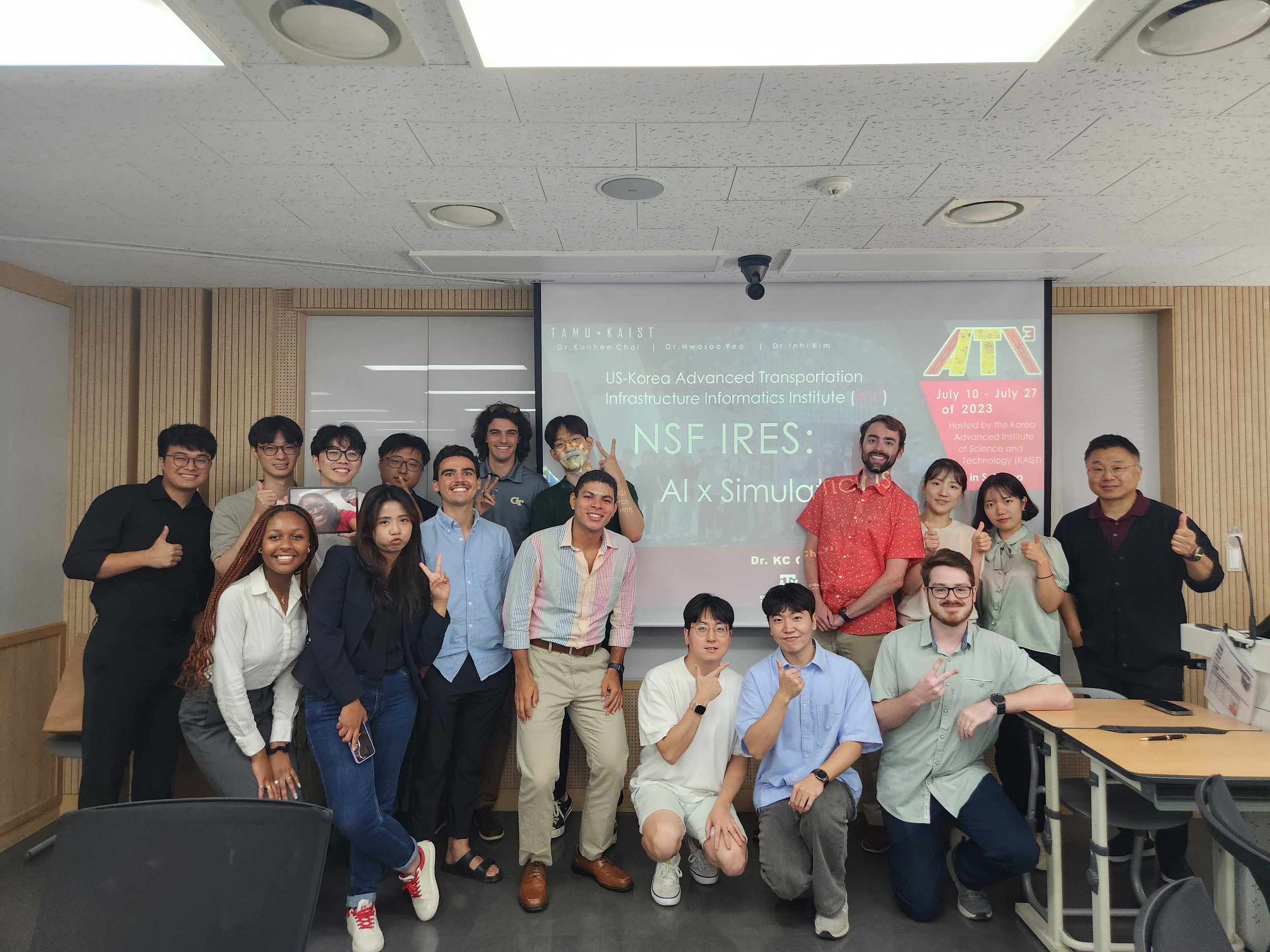

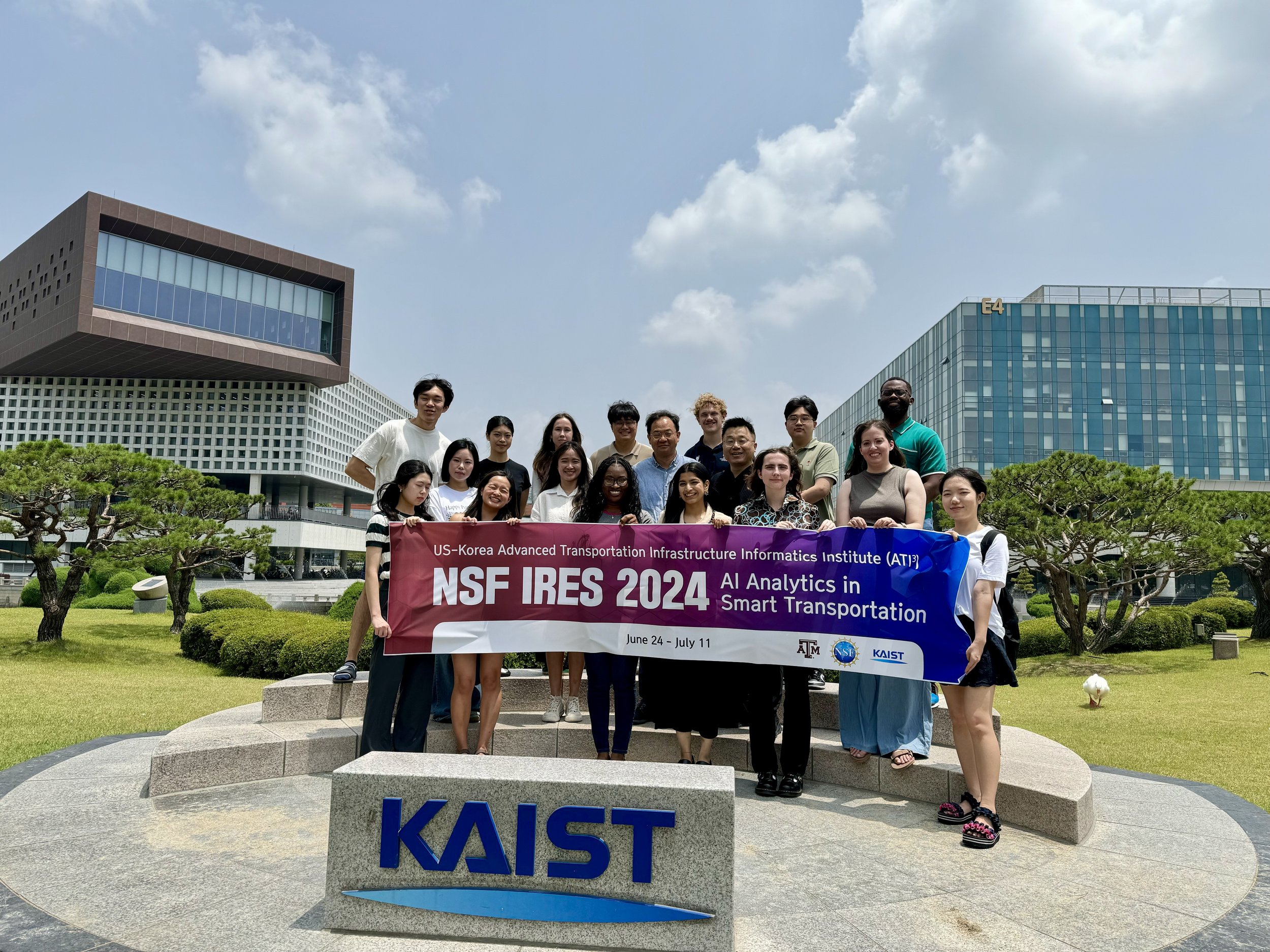
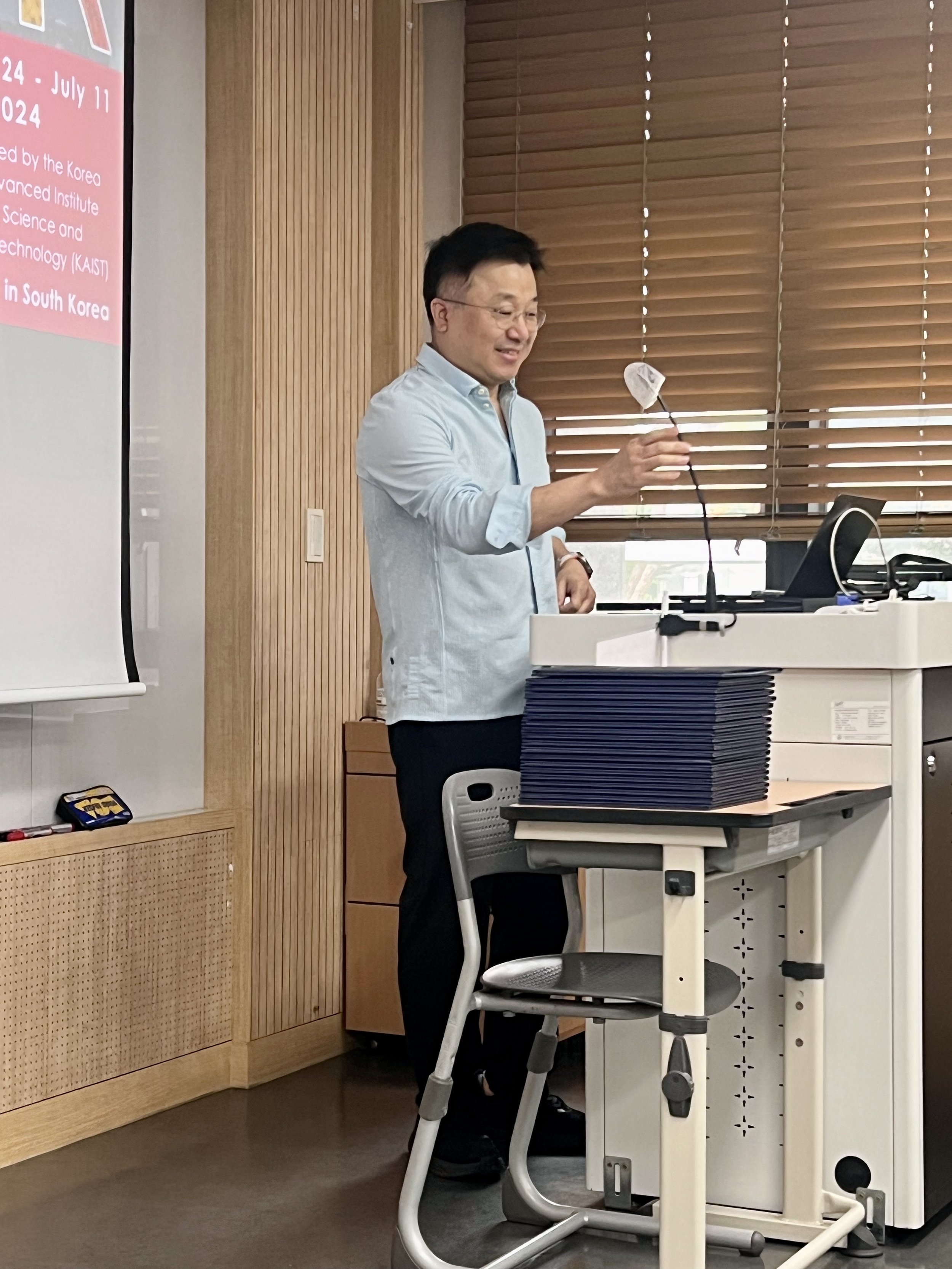
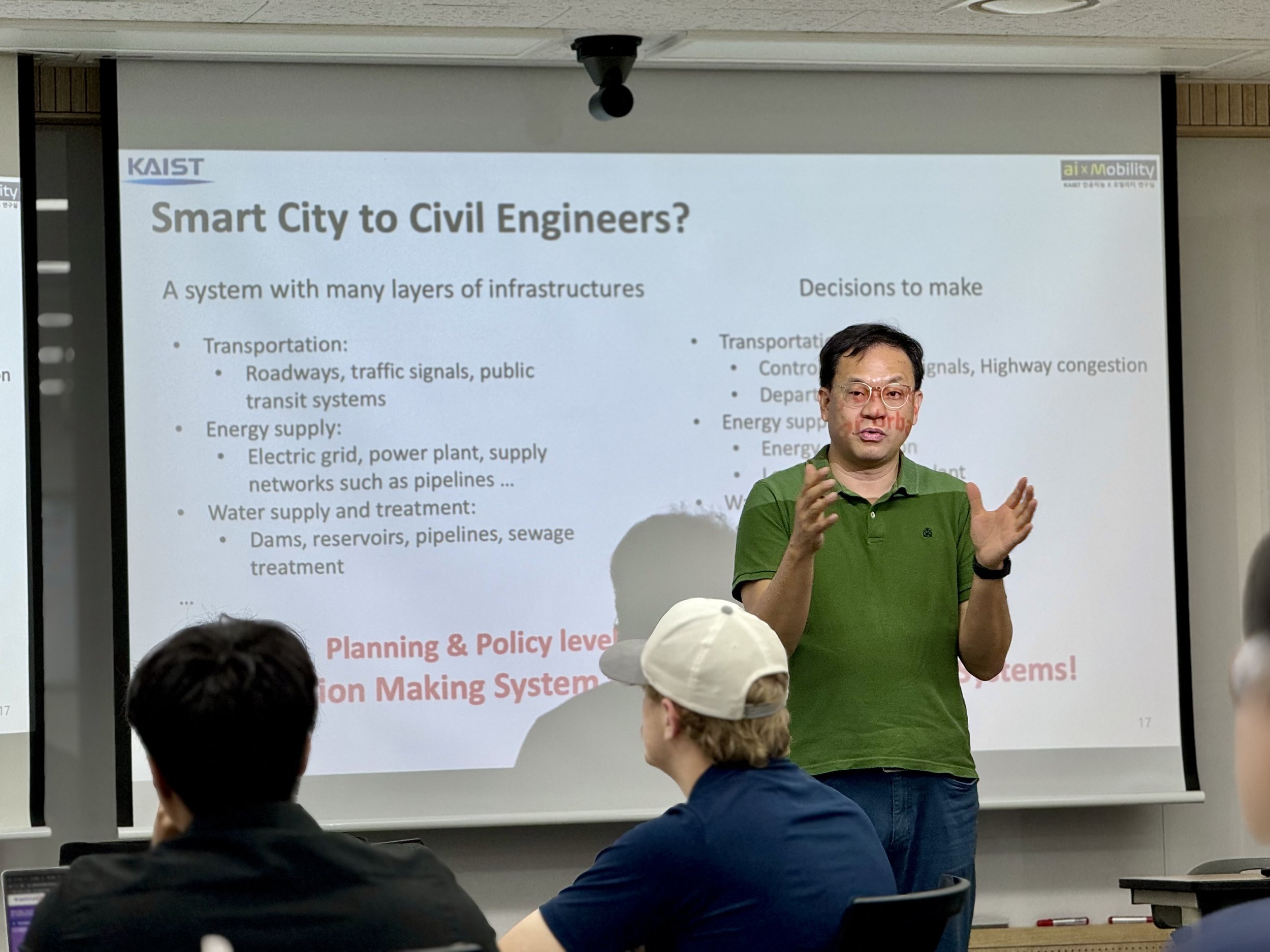
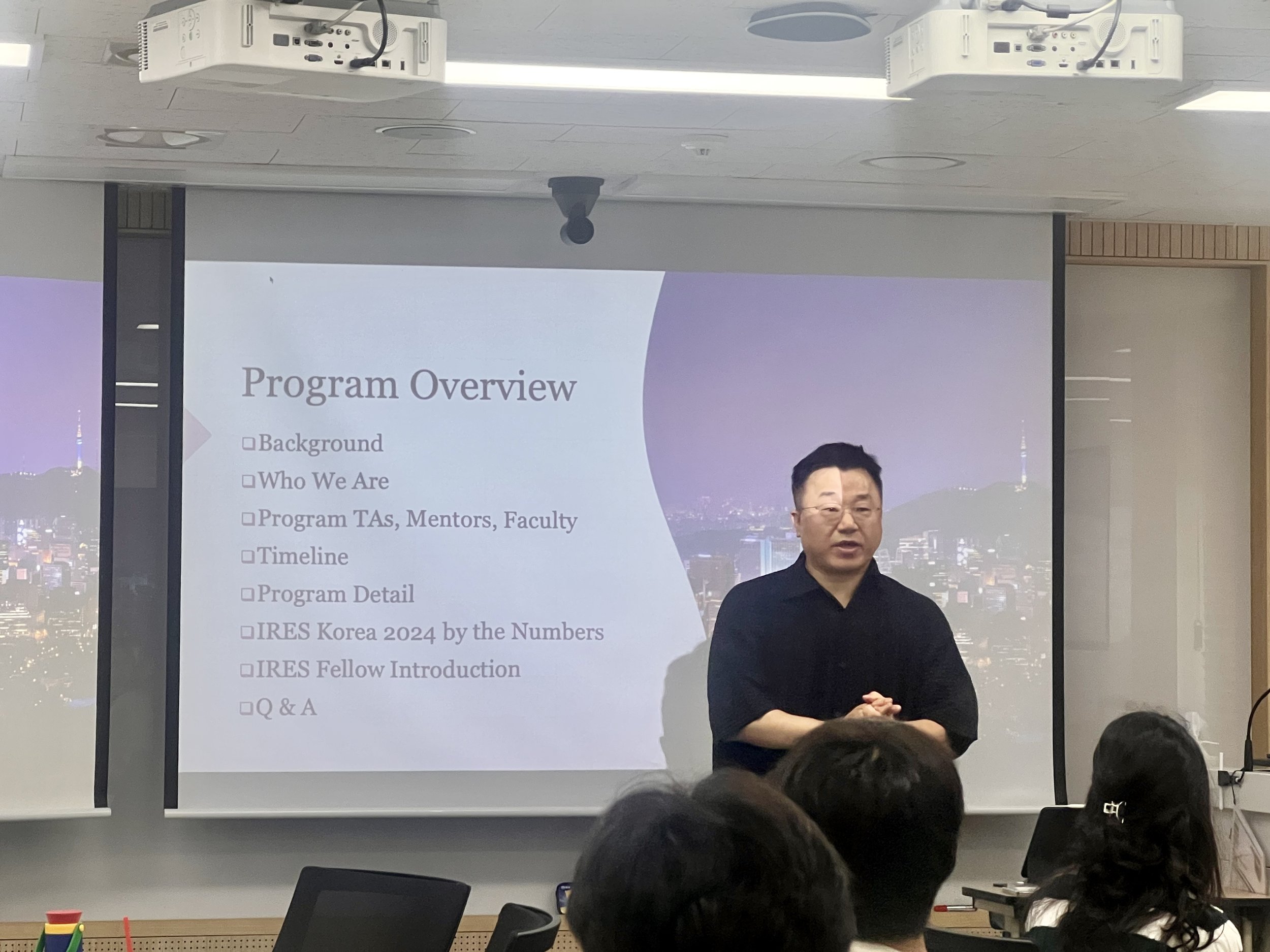
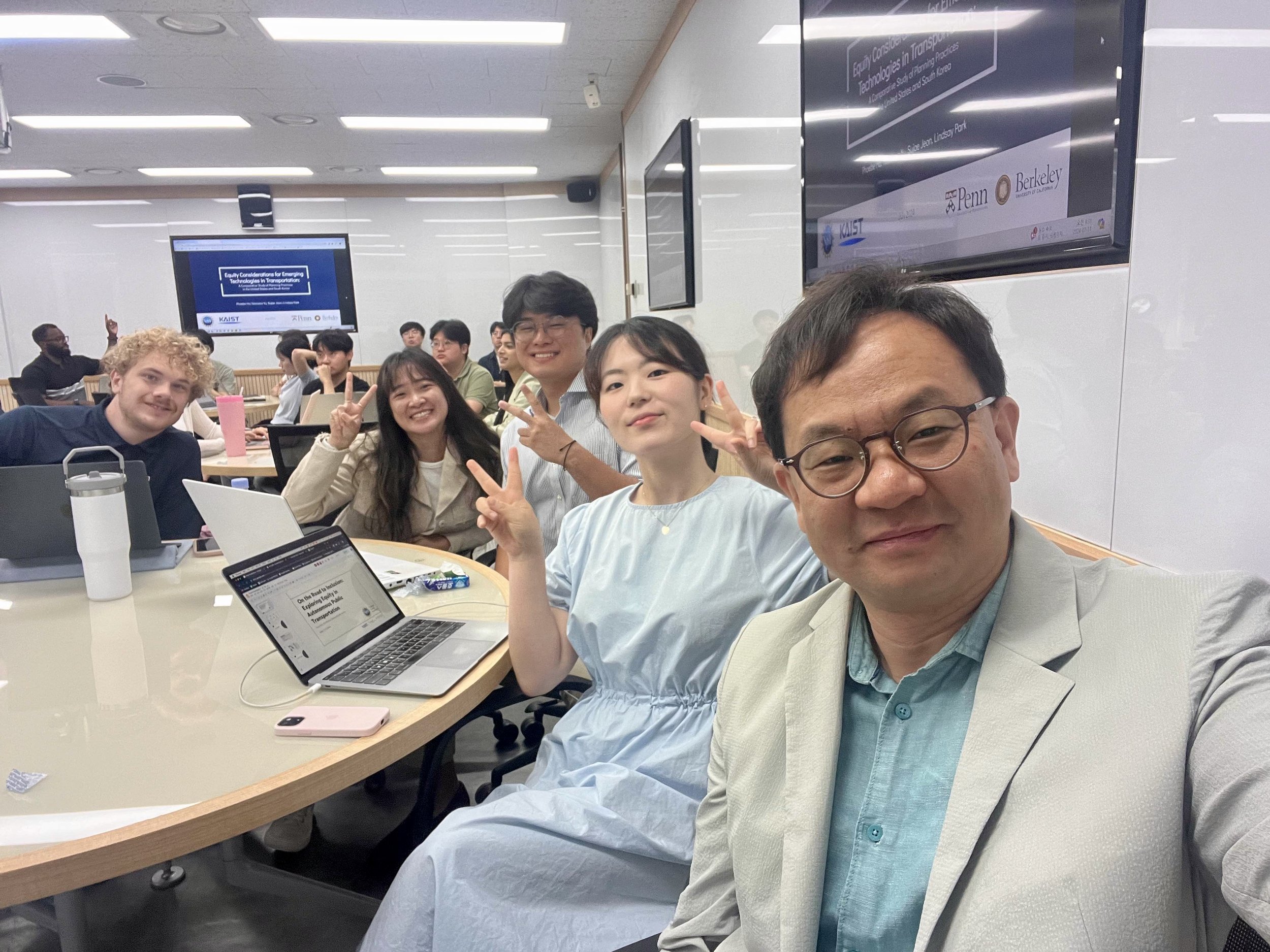
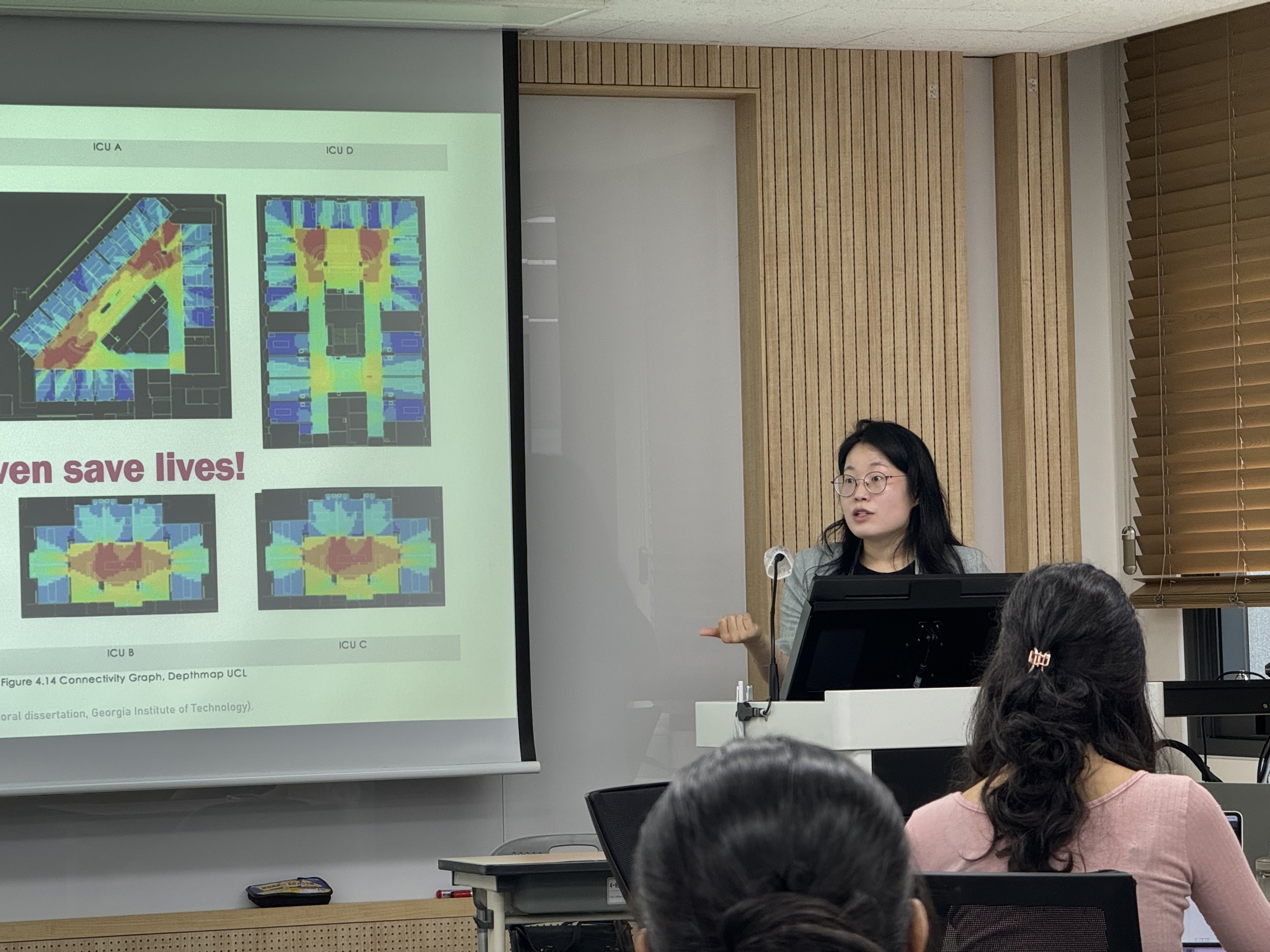
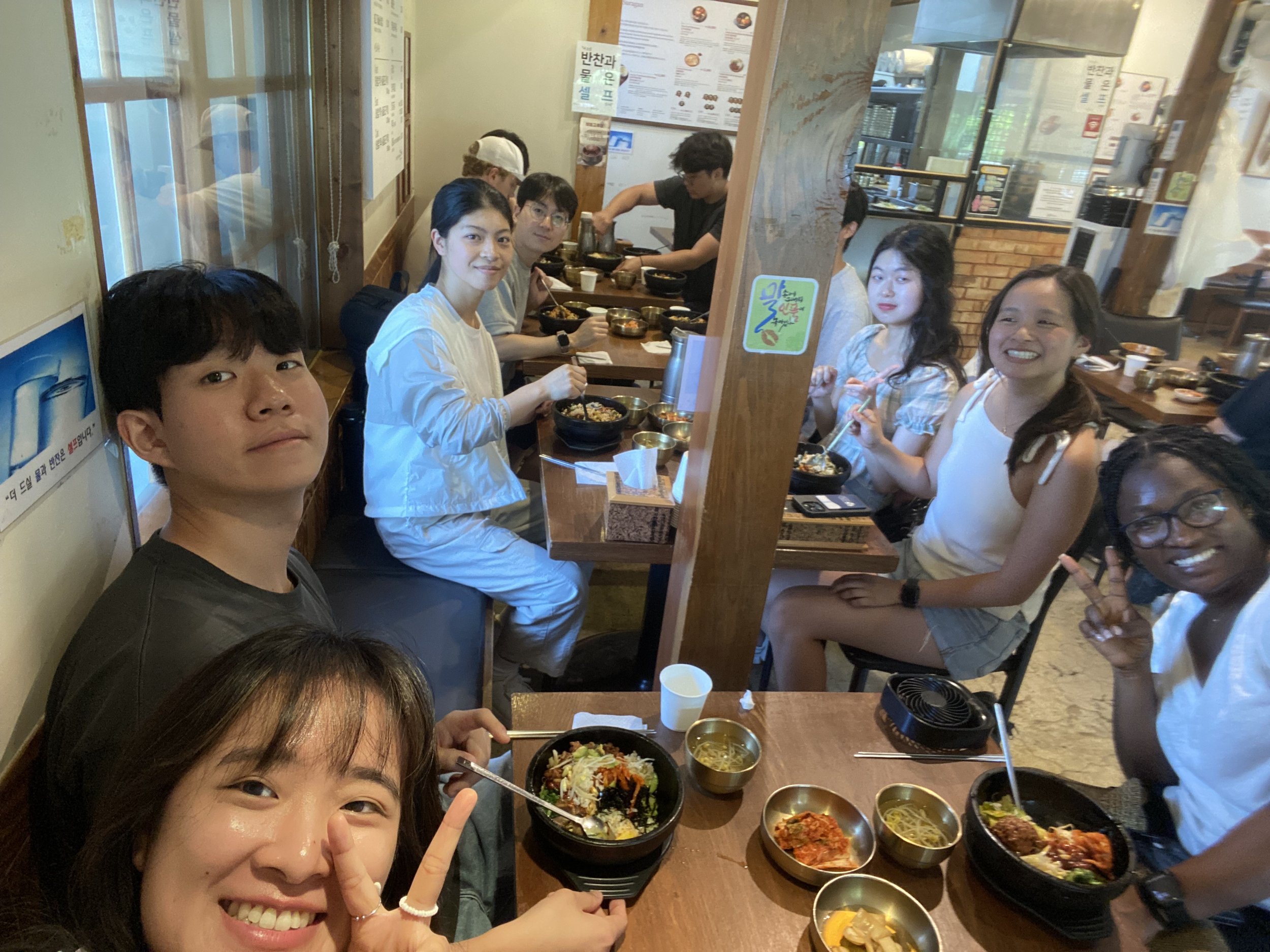
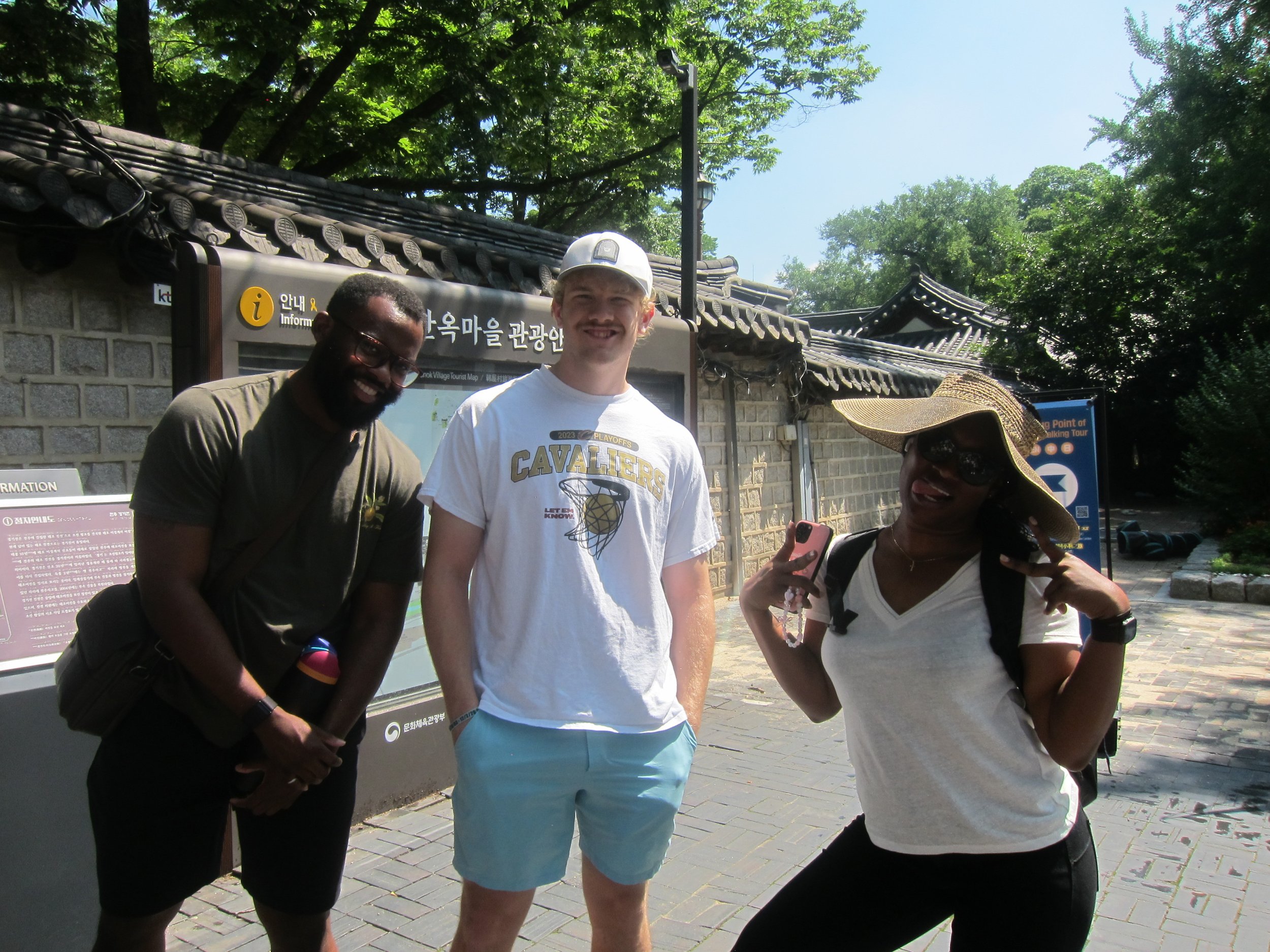
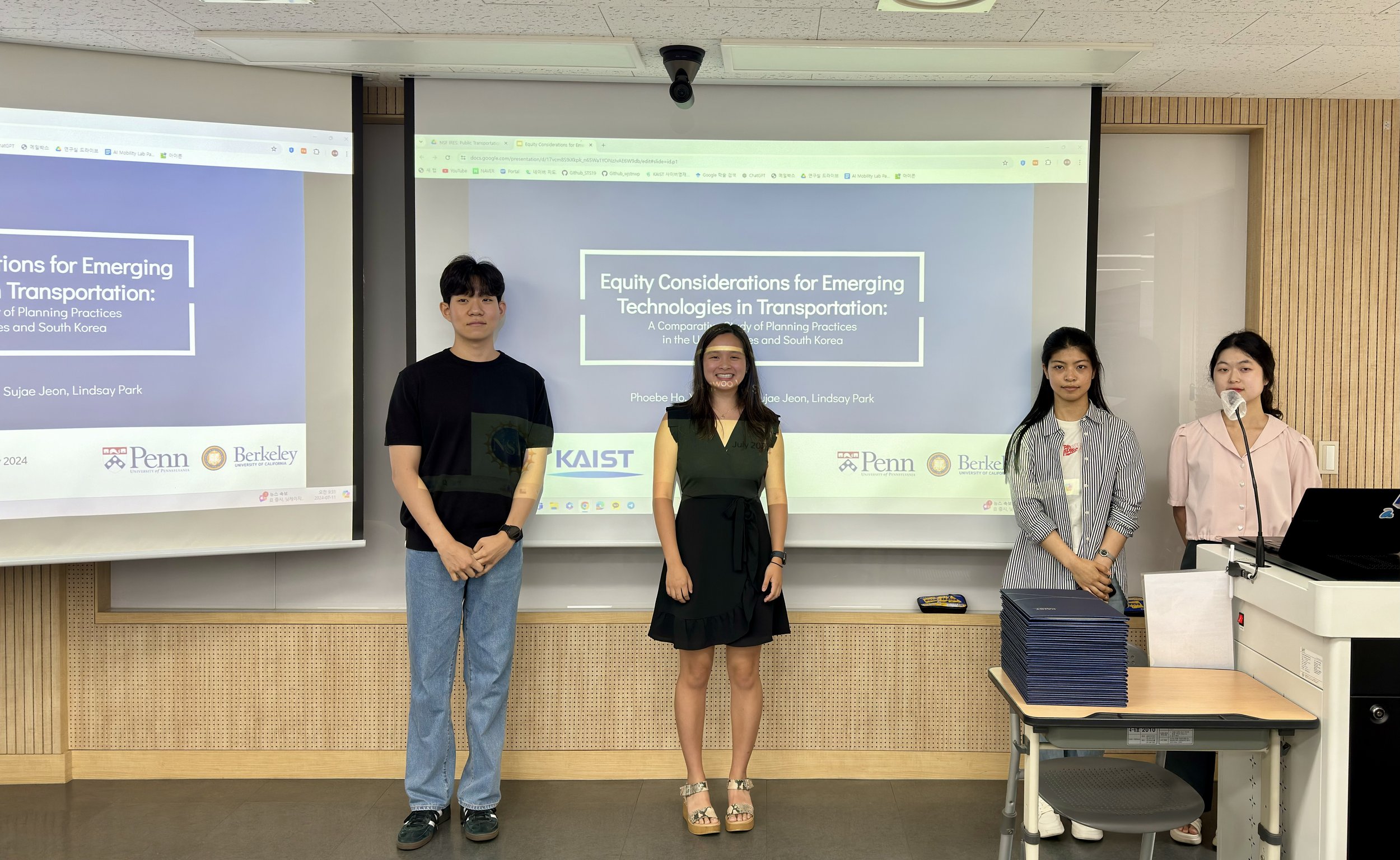
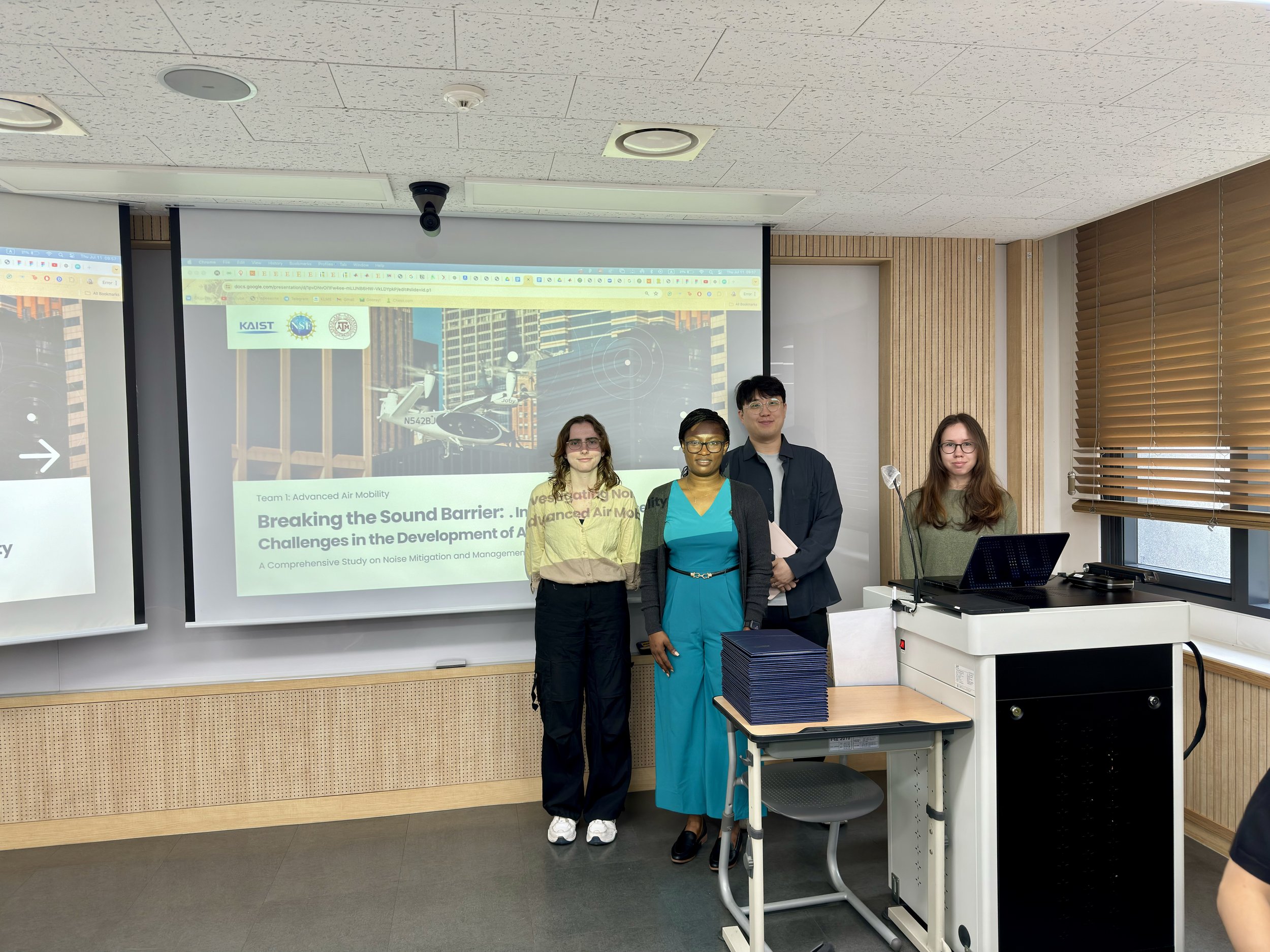
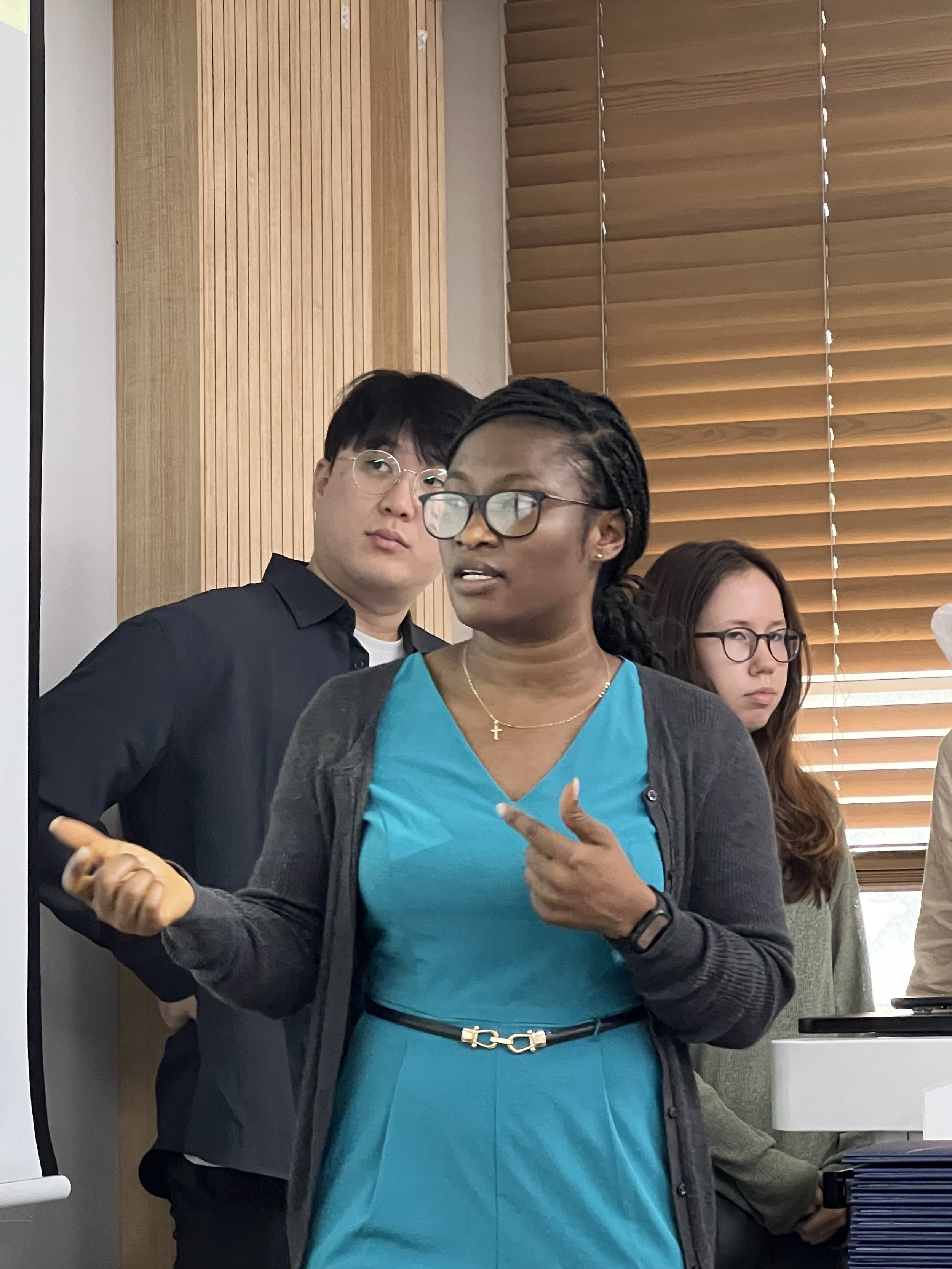
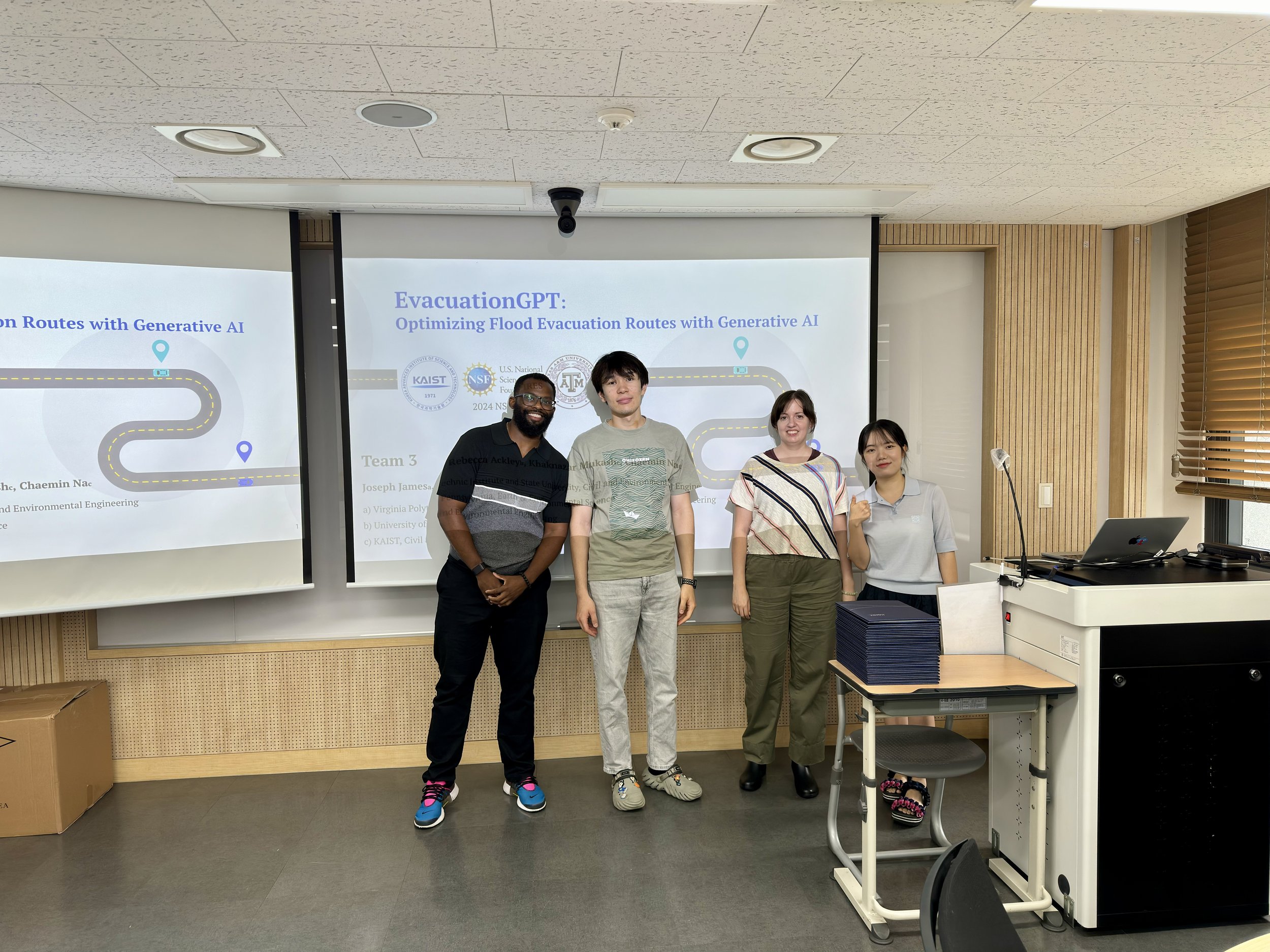
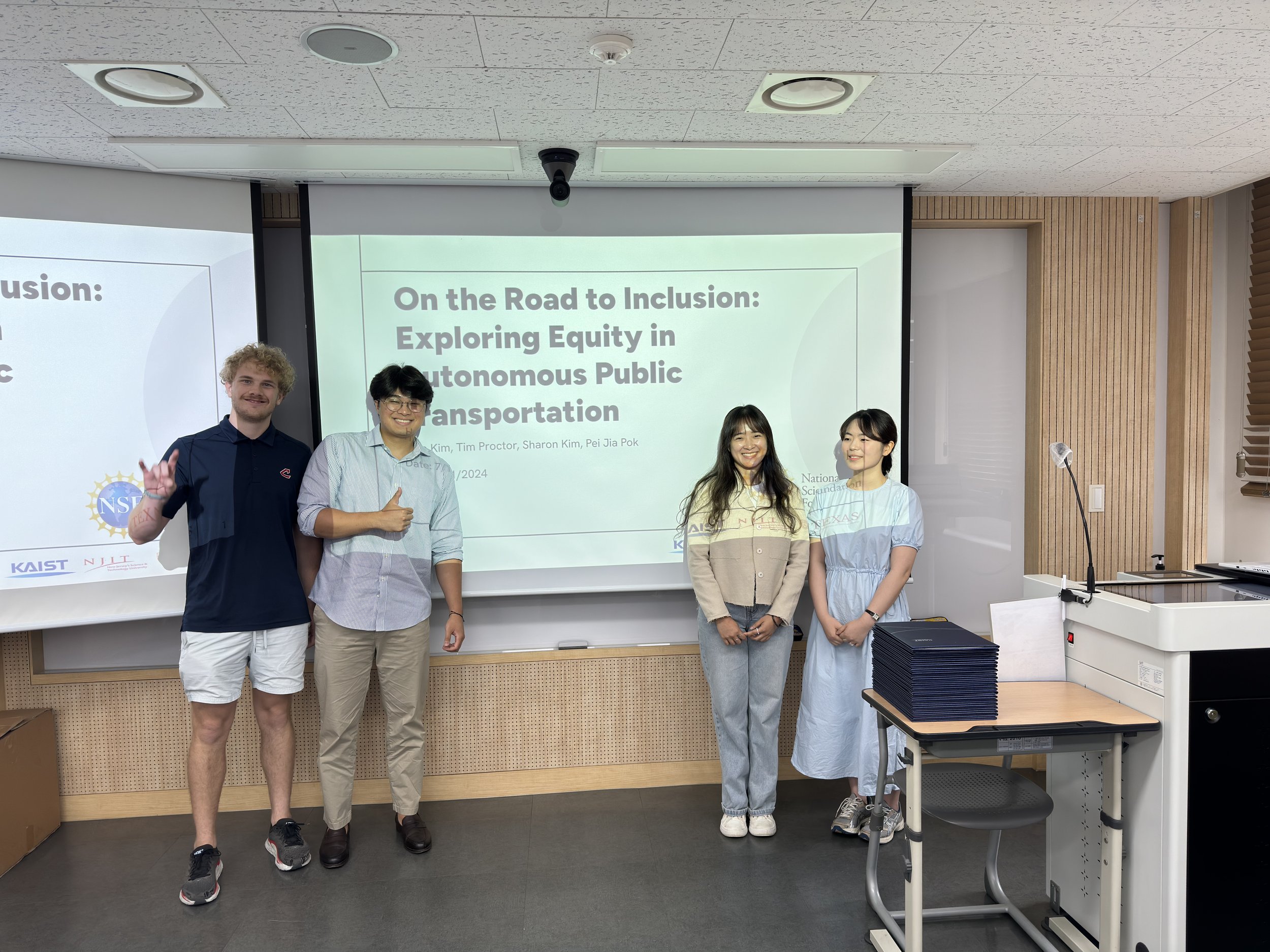
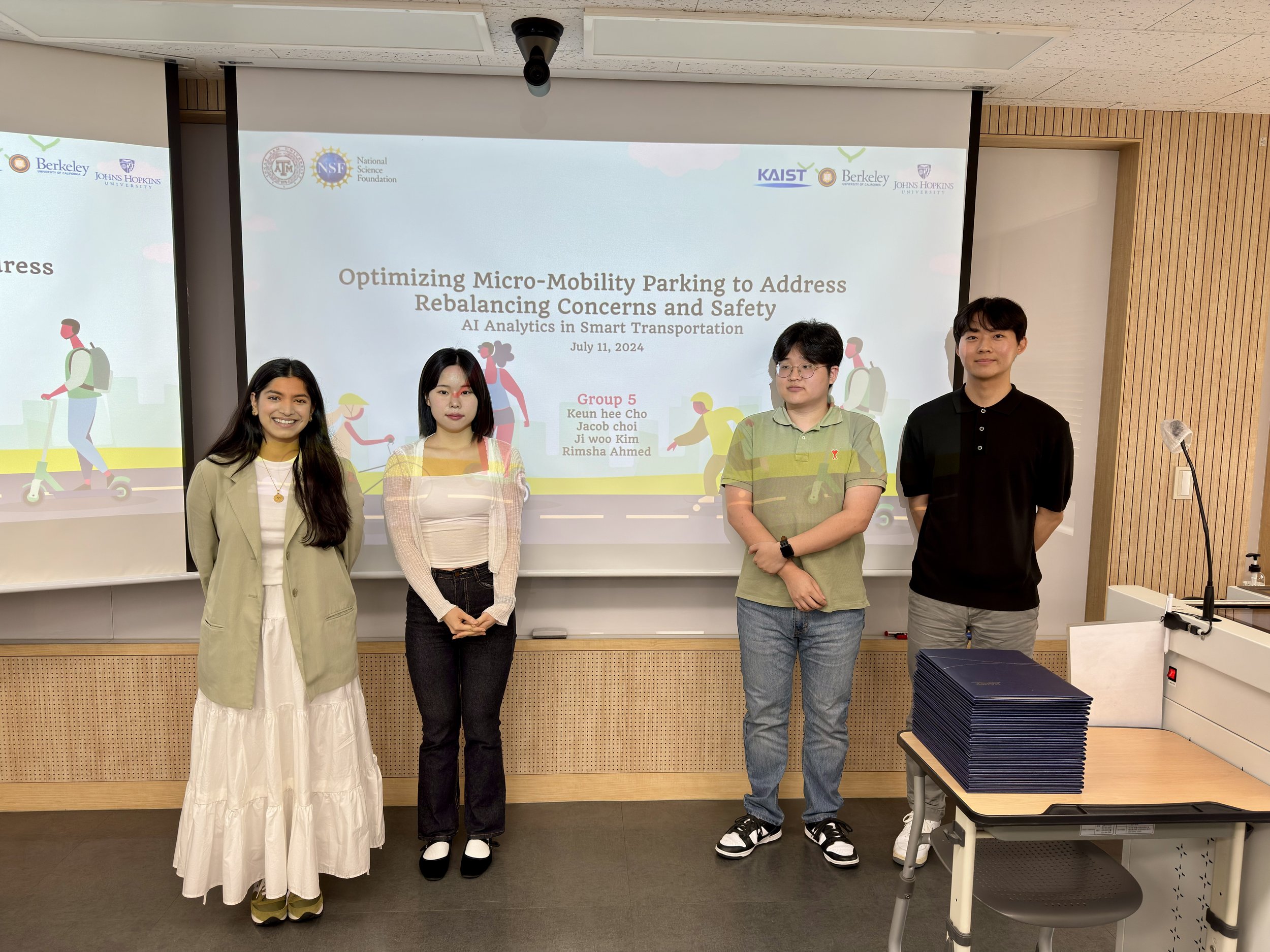
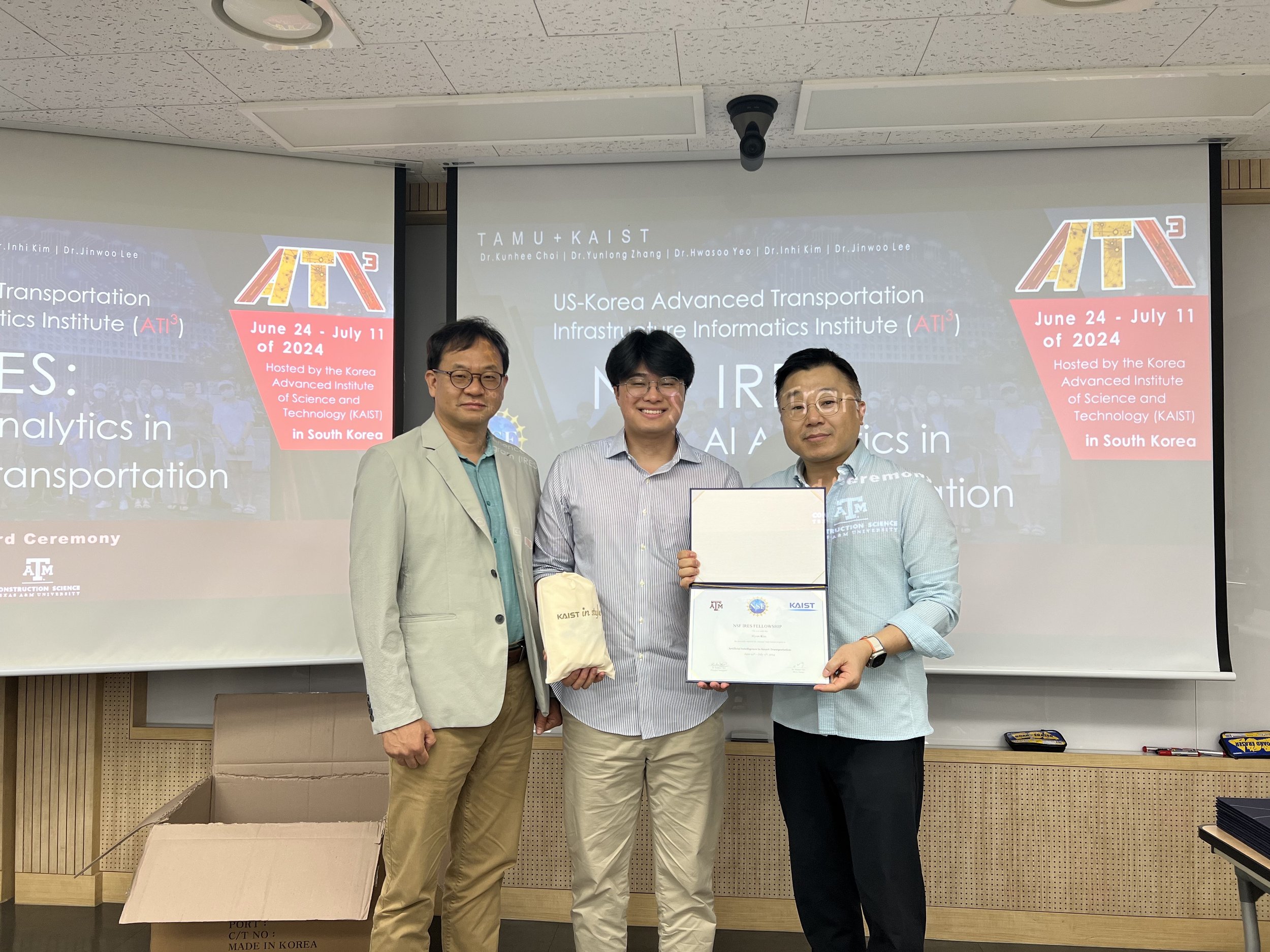
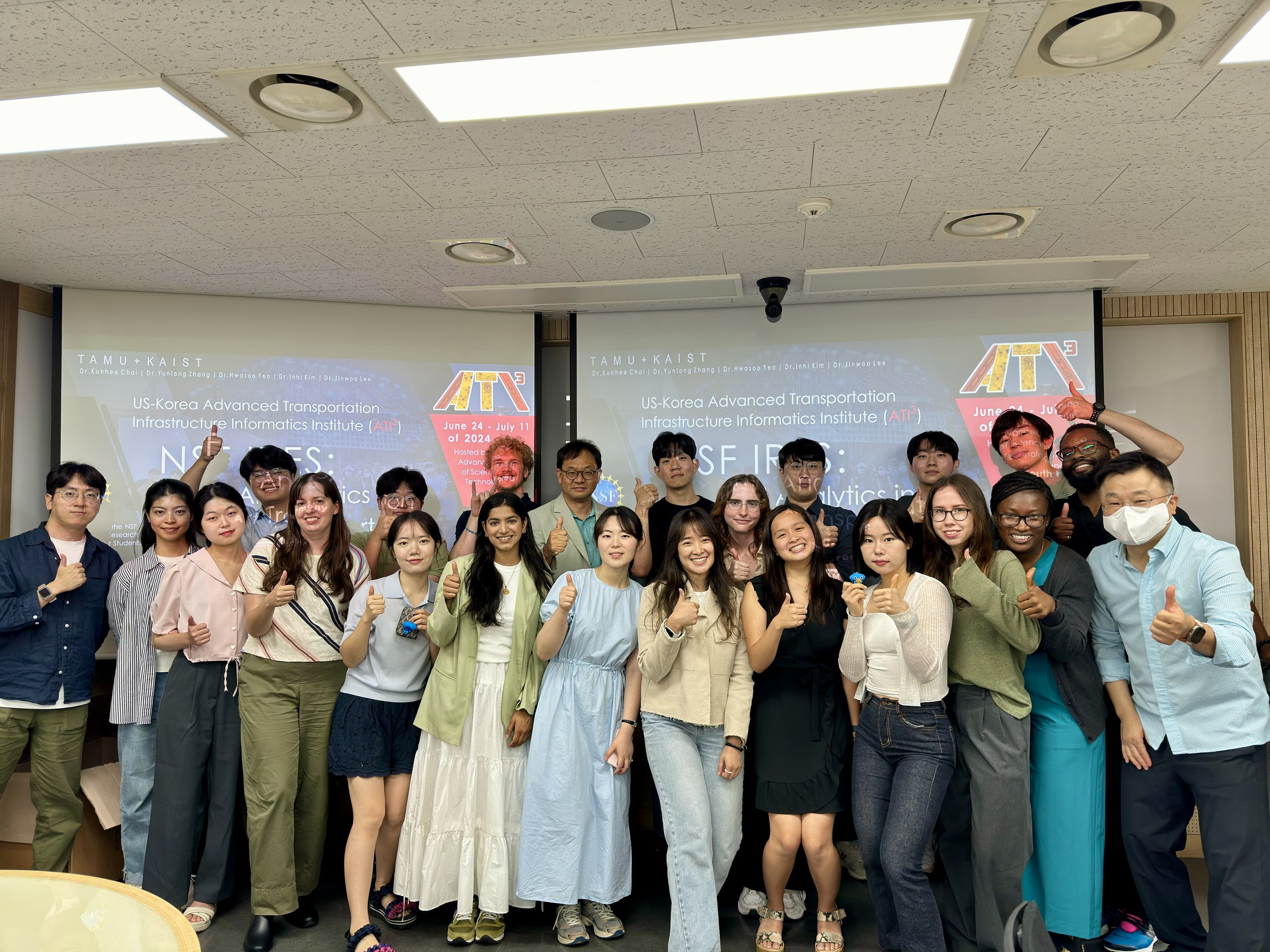
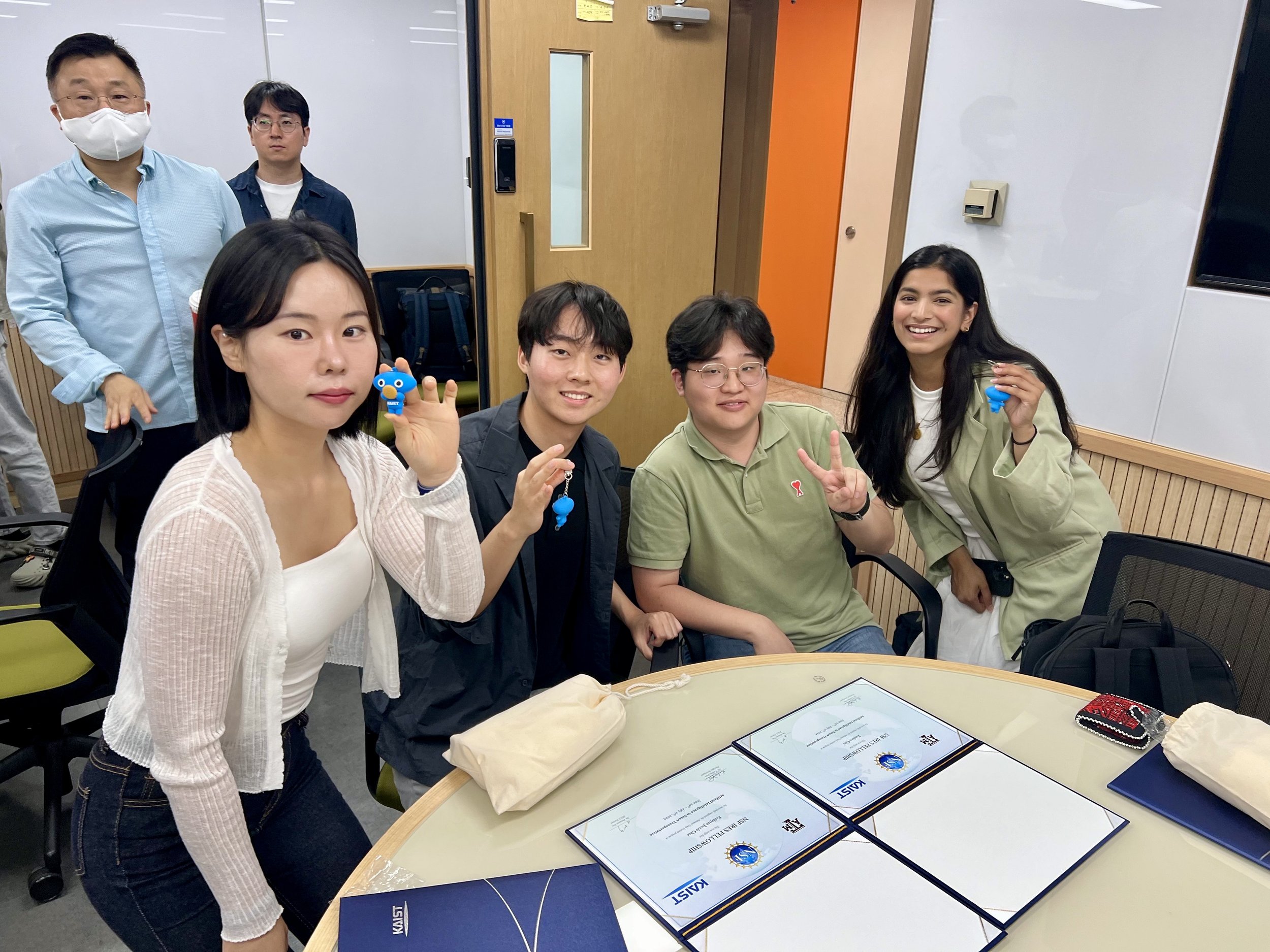
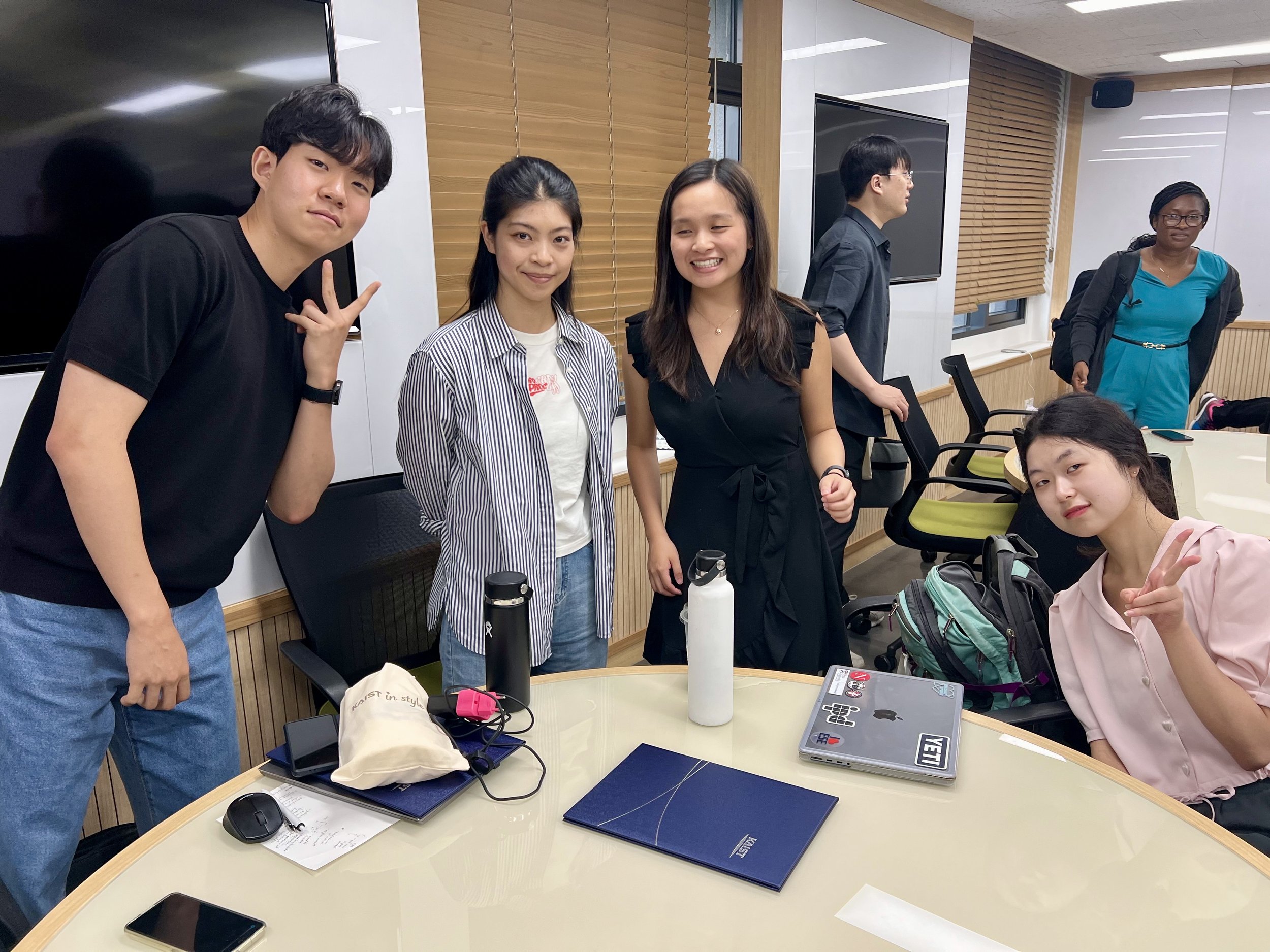

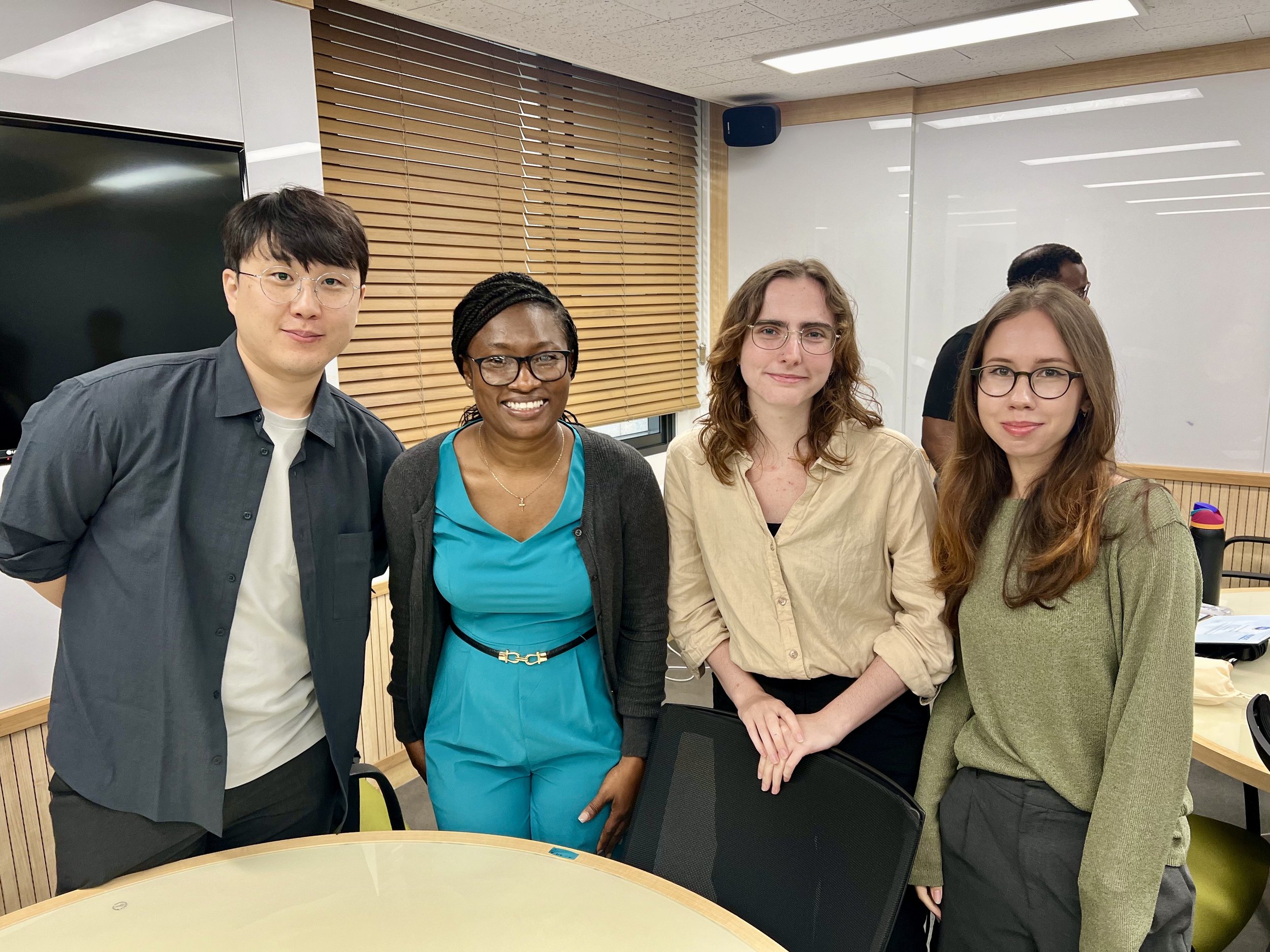
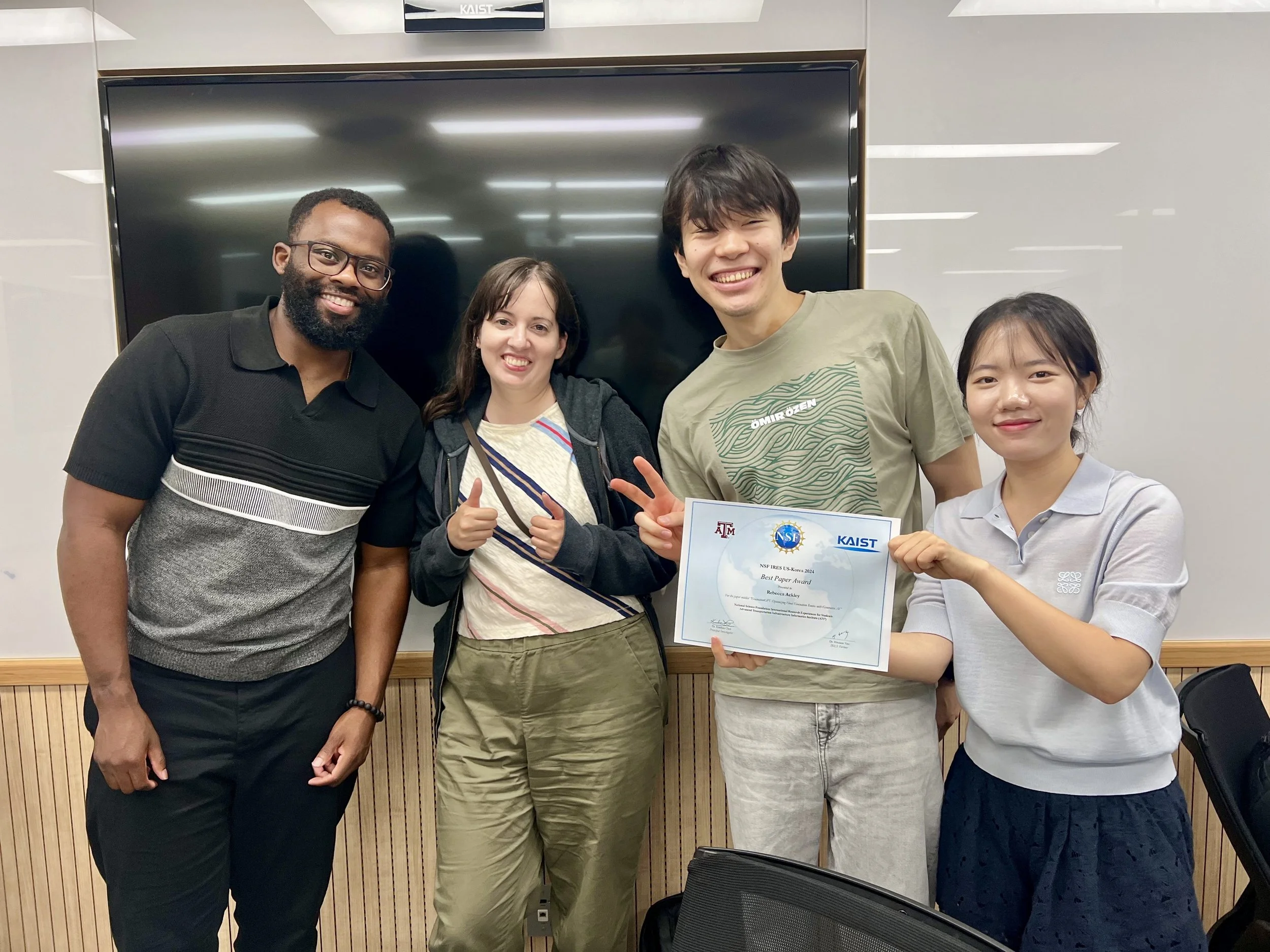
NSF US-Korea Mutual Ires: 2025-2027
THE NSF IRES US-KOREA ADVANCED STUDY INSTITUTE AT KAIST
In previous years, the IRES (International Research Experiences for Students) program effectively trained a diverse cohort of US-based students in transportation informatics, encompassing key areas such as big data and AI fundamentals. The 2022 US-Korea IRES program was audited by the National Research Foundation of Korea. In collaboration with the NSF, the same IRES team has recently launched a parallel workforce development initiative known as "Reverse US-Korea IRES," slated to pilot in 2024 and commence over the next three years. However, while both IRES program designs incorporate elements of professional and cultural development, the previous US-Korea IRES program, which concluded in the summer of 2024, faced a challenge due to the lack of dedicated funding to foster research networking and facilitate focused thematic collaboration. The upcoming IRES program between the U.S. and South Korea seeks to address this gap, aiming to create a robust mutual capacity for advanced international research experiences for students.
Welcome, NSF IRES Fellows!
We are excited to have you join us at the 2025 NSF IRES US-Korea this summer! Below, you will find vital information to make your experience there a great one.
NSF IRES US-Korea 2022-2024: Project Outcomes
The field of intelligent transportation is currently in the midst of a revolutionary transformation, transitioning from a reactive to a proactive approach. This shift, largely propelled by the adaptive capabilities of Generative Artificial Intelligence (GenAI), has not only sparked a wave of innovative transportation solutions but has also significantly improved their accessibility to the general public through real-time decision-making processes. As transportation systems evolve to become more complex, interconnected, and user-centered, the integration of digital intelligence into current infrastructure management and operational practices is becoming increasingly imperative.
To address this critical need, the Advanced Transportation Infrastructure Informatics Institute (ATI3) was established at the Korea Advanced Institute of Science and Technology (KAIST) in South Korea. This three-year program focuses on pioneering research in intelligent and adaptive transportation, with an emphasis on data analytics (Year 1 in 2022), simulations (Year 2 in 2023), and AI-driven analytics (Year 3 in 2024). A key objective of the program was to cultivate a next-generation workforce proficient in both advanced AI techniques and intelligent transportation systems.
The ATI3 program, through its IRES Korea initiative, has provided research experiences for 31 participants, including 61% doctoral students, 23% master’s students, and 16% undergraduates. The IRES Korea ATI3 program provided an invaluable foundation for the academic and professional growth of IRES fellows, preparing them to contribute to global transportation solutions and policymaking. Through close collaboration with two Principal Investigators (Drs. Kunhee Choi & Yunlong Zhang) and one lead international partner (Dr. Hwasoo Yeo at KAIST), the IRES US-Korea program offered a cohort-based, action-learning experience. Action learning, which emphasizes “learning by doing,” is a recognized method for developing innovative solutions to complex real-world challenges. Fellows collaborated in mixed research cohorts, pairing two U.S. participants with two KAIST students to tackle real-world transportation challenges. These cohorts were supported by two dedicated postdoctoral mentors from KAIST and program faculty members.
Each student team produced individual research papers, laying a solid foundation for future theses and research articles. These efforts equip participants with the skills necessary to make significant contributions to society in both academic and professional contexts. In addition to technical skill development, the program emphasized professional growth through guest lectures and seminars in AI-driven predictive modeling and data analytics. Participants had opportunities to engage with local researchers who are recognized internationally, attend professional events, and network with global experts in transportation. Our student teams of the 2024 NSF IRES Korea Cohort submitted four papers to the Transportation Research Board’s annual conference, the largest knowledge cross-pollination networking event for transportation-related professionals worldwide and various sectors. Remarkably, three of these papers have been accepted for oral presentation and are also being recommended for publication in the reputable TRR journal, a rare achievement!
To further enhance the learning experience, we have developed this dedicated web page featuring detailed accounts of the research activities and photographic documentation of the IRES program. A social media platform was also created to facilitate ongoing communication among participants, industry professionals, government representatives, and nonprofit organizations. This platform is a resource for IRES fellows to maintain connections and explore potential career paths in academia or industry.
The rapid advancements in AI and technology are reshaping intelligent transportation, impacting various stakeholders, including planners, engineers, policymakers, commuters, and workers. Understanding how these technologies shape their roles and, conversely, how individuals can influence these technological advancements within their professional environments is crucial. The ATI3 program, with its scientific outcomes including one conference paper and four journal articles currently under review, has played a significant role in informing evidence-based policies, shaping technological innovations, and implementing strategies to promote equitable opportunities for the workforce.
Infographics
“We develop a diverse, globally engaged next-generation workforce with world-class skills.” (NSF IRES Program)
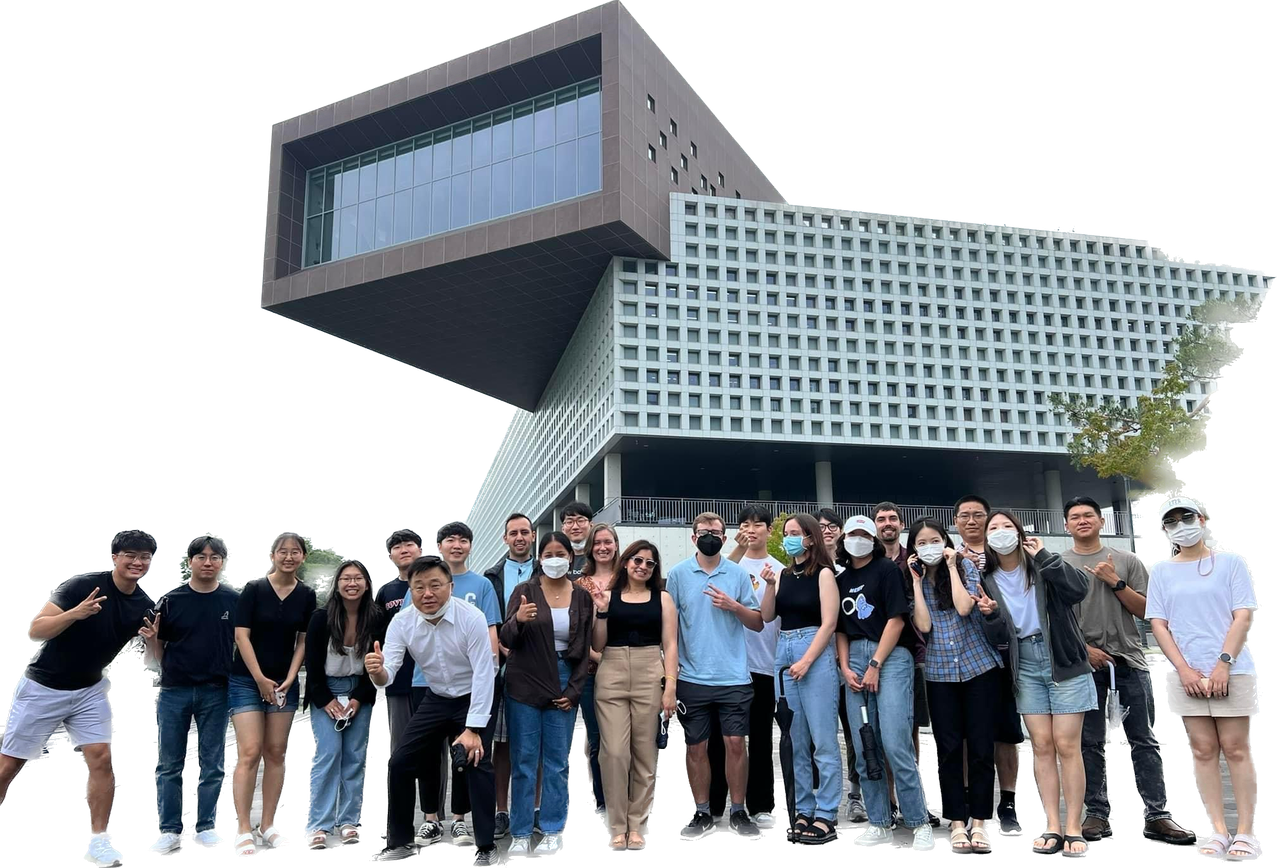
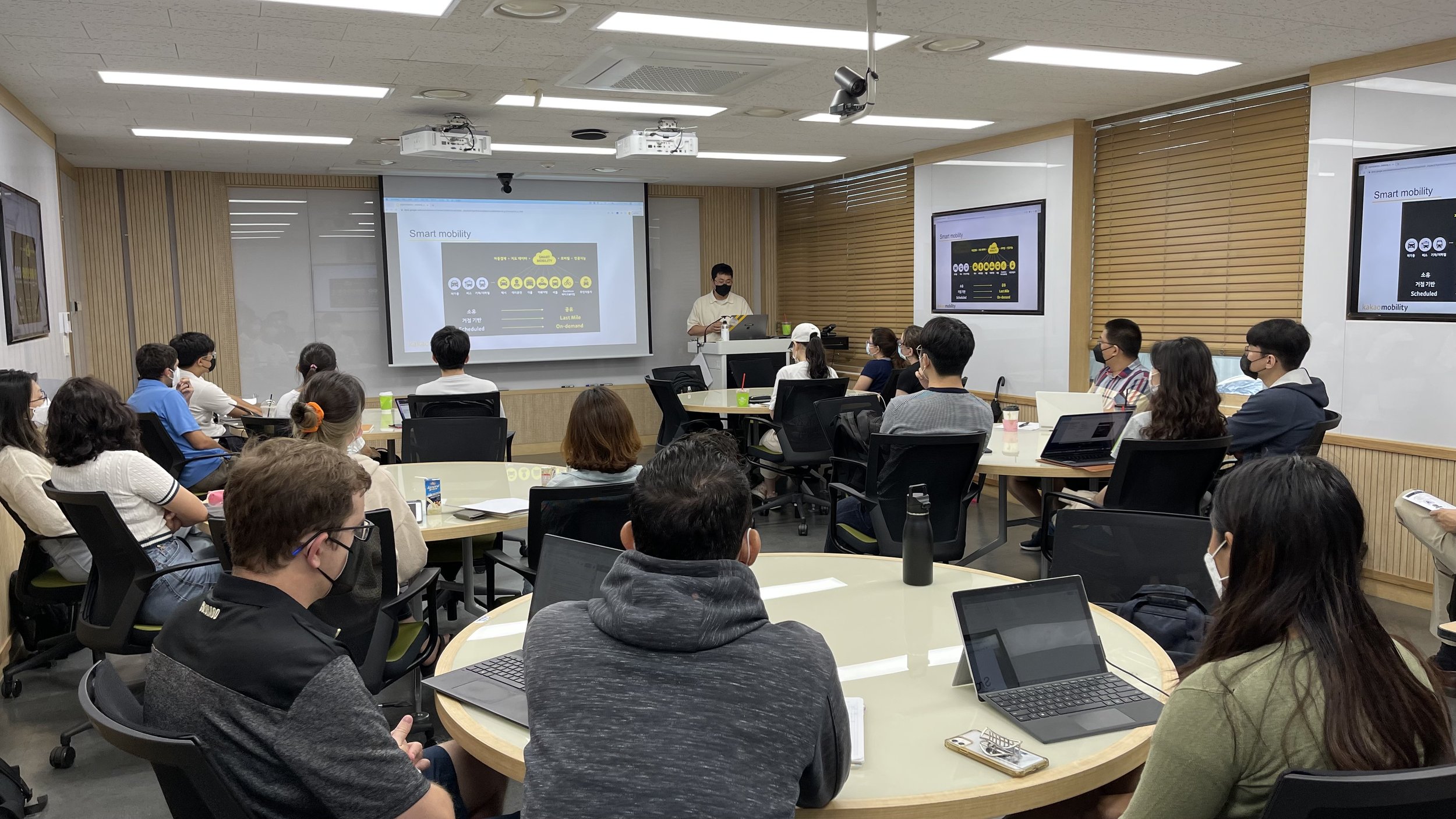
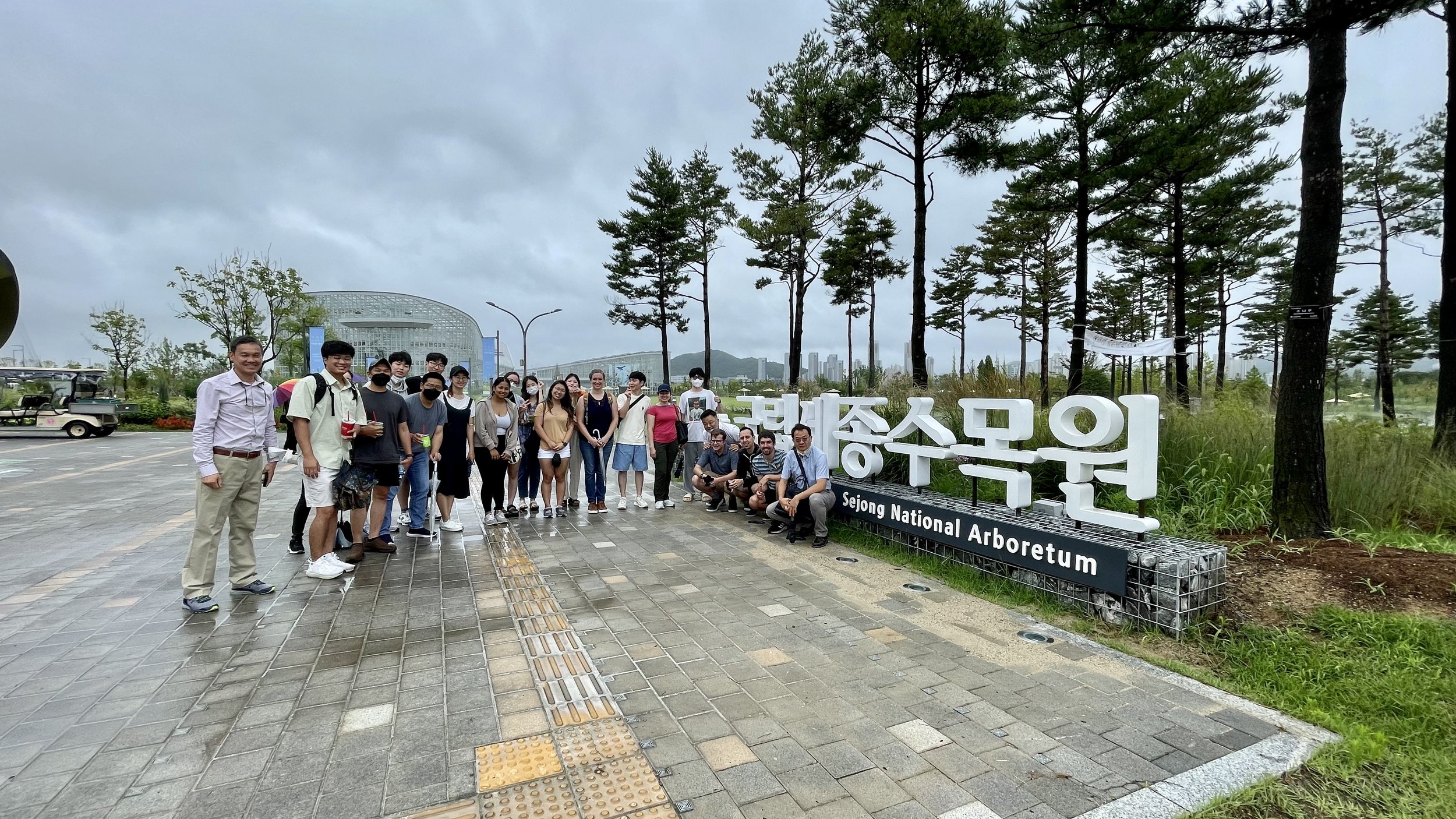
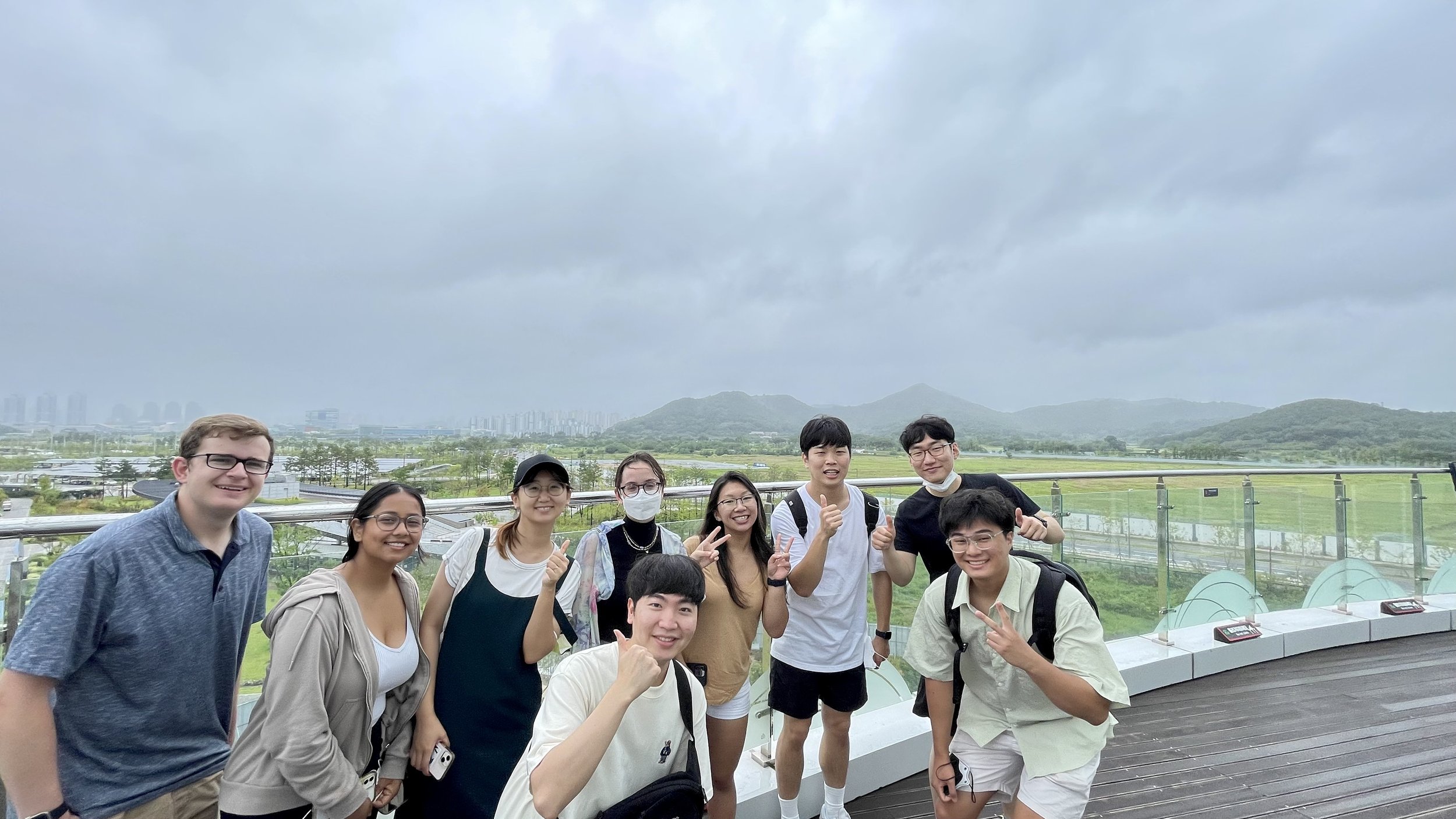
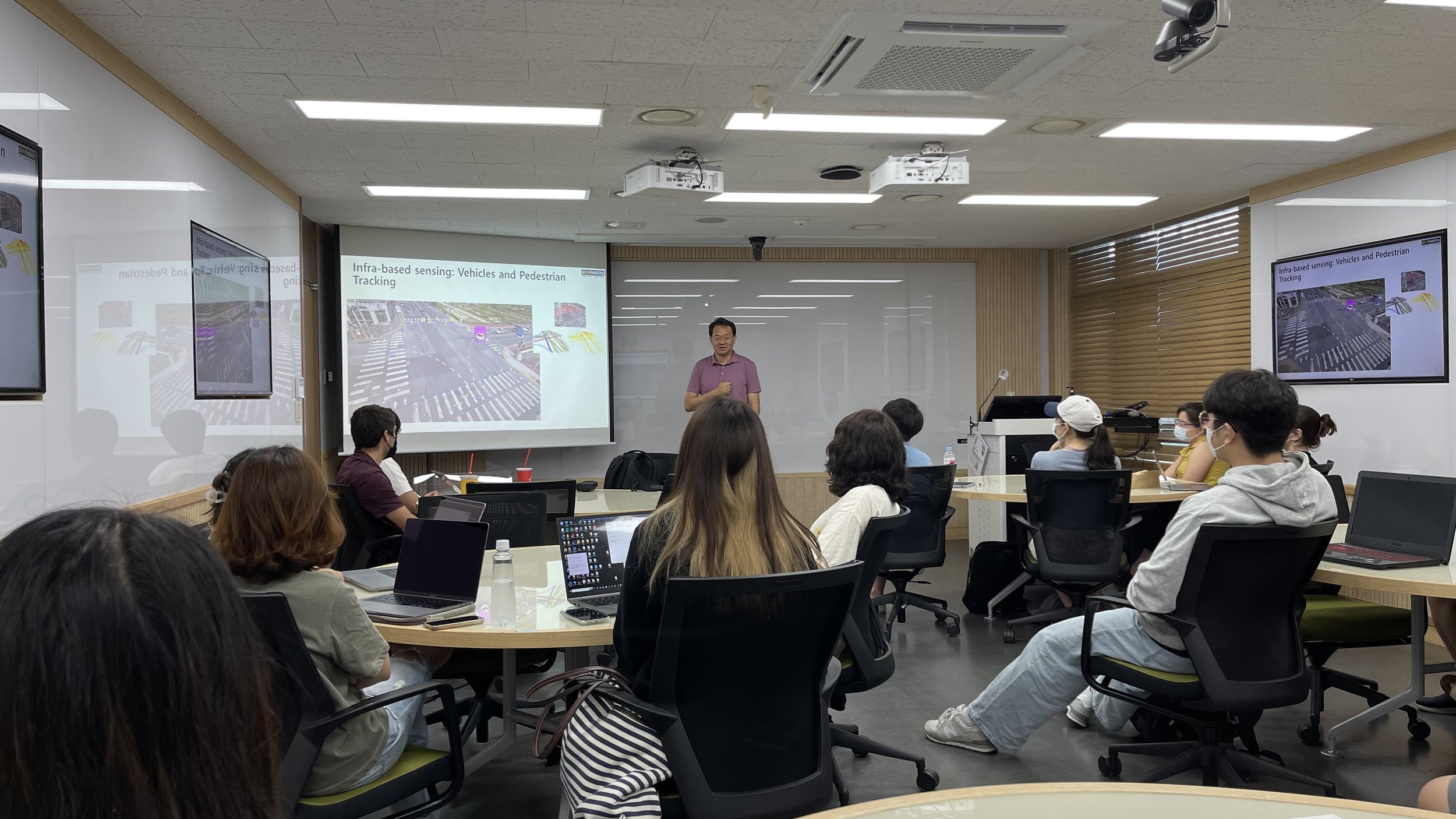
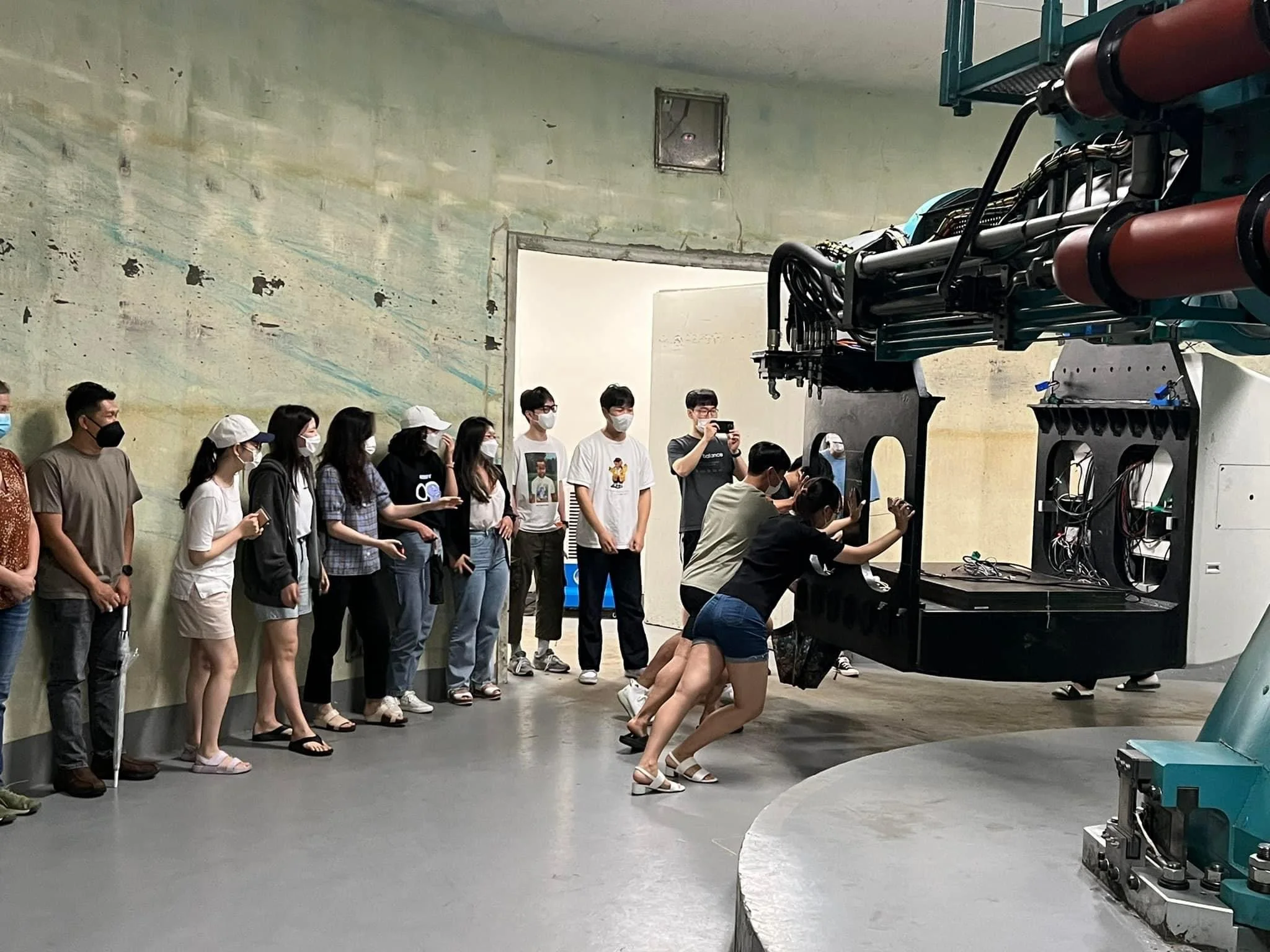

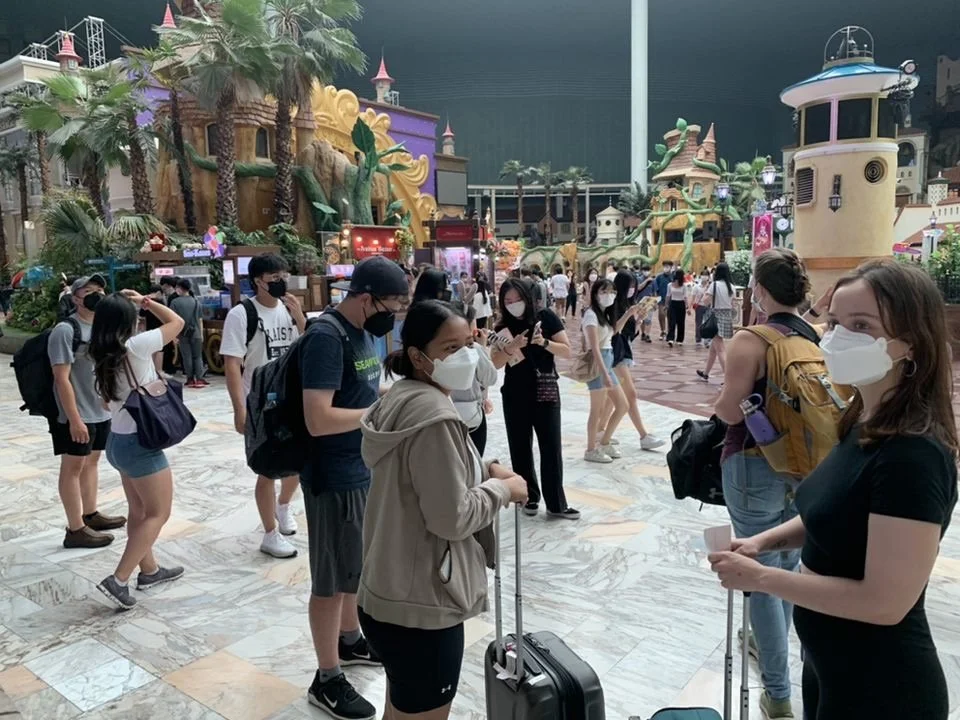
Research themes: Future of work
Rapid advancements in GenAI and technology are transforming intelligent, adaptive transportation, impacting workforces from various fields and emphasizing the need to understand and shape these changes. The future of the transportation sector demands a collaborative, transdisciplinary approach, reflected in our NSF IRES US-Korea student recruitment strategy, to inform policies, shape technology, and ensure equitable opportunities through research on technology and human interactions in the workplace.
NSF IRES US-KOREA FELLOWS
This program is designed to provide transformative active learning by pursuing an innovative project-based approach in which students learn about a specific research project by working in a cohort of research teams solving grand societal challenges.
WHAT TO PACK
Please bring a notebook, pens or pencils, toiletries, and essential medications. A laptop is required. We recommend getting a cell phone and charger, umbrella, bathing suit, casual and comfortable warm weather clothes, a light jacket for cool evenings, and most importantly, comfortable walking shoes for field trips and the travel week.
PROGRAM RULES & POLICIES
The NSF IRES US-Korea Program brings together a diverse community of participants to educate a future workforce possessing a holistic understanding of smart transportation concepts and emerging AI techniques, along with strong critical thinking and problem-solving skills honed via real-world applications. To this end, our student recruitment strategies are meticulously conceived to involve diverse yet competitive student/institutional sets. As a result, the program is filled with talented young minds who are bright, inventive, and diverse. There is no doubt that this program will serve as a solid foundation for the IRES fellows’ theses and research papers.
We want each participant to feel safe and protected in our community. We abide by a nondiscrimination policy regarding race, color, religion, national origin, disability, veteran status, sexual orientation, gender identity, gender expression, sex, genetic information, and age. Please be respectful, responsible, and fair during program and extracurricular activities. Please commit to being on time and productive for daily lectures and afternoon project team meeting sessions. Listen to new ideas with an open mind, and expect to explore and expand your thoughts. Anyone who deliberately violates the rules and the spirit of the NSF IRES US-Korea program, including the respect and tolerance we owe each other, will be sent back home.
FIELD TRIPS
The Thursday of the program is a “travel" day. You will witness state-of-the-art technologies and techniques used for a smart city. We will coordinate and arrange everything for you.
Testimonial
“The NSF IRES program has been a truly transformative educational and cultural experience, and will have a lasting impression on my life. I look forward to continuing the work with the program faculty over the coming months for publication.”
Mitchell Manware, graduate student of Yale University
“My experience with the NSF IRES US-Korea program has been stupendous. The impressiveness originates not only from being able to meet different kinds of people from all over the United States and KAIST, who I can cooperate with, but also the excellent curriculum and learning opportunities the program provides. As a second year PhD student, participating in this program for two years has given me a colossal advantage because I experienced first hand the theories and applications of machine learning in transportation through exceptional lectures, guest speakers, and group research.”
Hyun Kim, PhD candidate of New Jersey Institute of Technology
“I participated in the NSF IRES US-Korea program during the summer of 2022. I applied to this program with the intention of challenging myself and expanding my academic horizons. Little did I know that this experience would soon become one of the most fulfilling and transformative catalysts, not only for my academic pursuits but also for my personal growth. This program provided me with the opportunity to engage and connect with individuals from across America and Korea. I gained insights into the intersectionality of various academic disciplines that we were all exploring and theorizing about. The program fostered a collaborative action-learning environment brimming with talented individuals. The lectures exposed me to concepts that I would never have encountered otherwise, thanks to the expertise of the many guest speakers. Additionally, the field trips enriched my worldview by allowing me to immerse myself in cultures that were both rich and welcoming. Through the group project, I was able to reinforce my self-confidence as I ventured beyond my comfort zone, synthesizing ideas from diverse fields. I am immensely grateful for the guidance and mentorship provided by Professor Choi and the entire program team. The memories I have formed in such a brief period will remain with me for the rest of my life.”
Atithi Shrestha, undergraduate student of Texas A&M University
“The program has been nothing short of transformative, and I am deeply appreciative of the support and guidance I received throughout this incredible journey. From the moment I learned that I had been selected as a fellow, I knew that this experience would be life-changing, and it exceeded my expectations in every way. Additionally, the Program not only provided me with financial travel assistance but also opened doors to a world of knowledge, cultural exchange, academic development, and personal growth.
Studying abroad allowed me to immerse myself in a diverse and intellectually stimulating environment, fostering collaborations with incredibly talented individuals from various backgrounds. Moreover, the mentorship and guidance from the program coordinators (Prof. Choi and Prof. Yeo and team) were invaluable in helping me navigate the challenges and seize the various opportunities that came my way. This experience has significantly broadened my engineering horizons, deepened my understanding of AI simulations and our interconnected world in general, and will continue to play an invaluable role in my academic and personal journey. Additionally, my stay in Korea has taught me resilience, adaptability, and the importance of embracing cultural diversity.
I would like to extend my heartfelt thanks to all the individuals involved in the NSF IRES US-Korea ATI3 Program, from the dedicated selection committee to the caring program staff and my esteemed fellow participants. The bonds and friendships formed during this program are something I will always cherish, and the memories will forever hold a special place in my heart. This experience has not only enriched my academic and professional journey but has also taught me important life lessons that I am readily sharing with my peers and colleagues at Purdue University. I am committed to using this opportunity to contribute to the advancement of engineering, and to inspire and support future generations of STEM students. Once again, thank you for this life-changing experience. Your support has made a significant difference in my life, and I am determined to pay it forward by making a positive impact in the engineering community and beyond.”
Bortiorkor “Naa” Alabi, PhD candidate of Purdue University
This NSF IRES web page is based upon work supported in part by the National Science Foundation under Grant No. 2420165.
